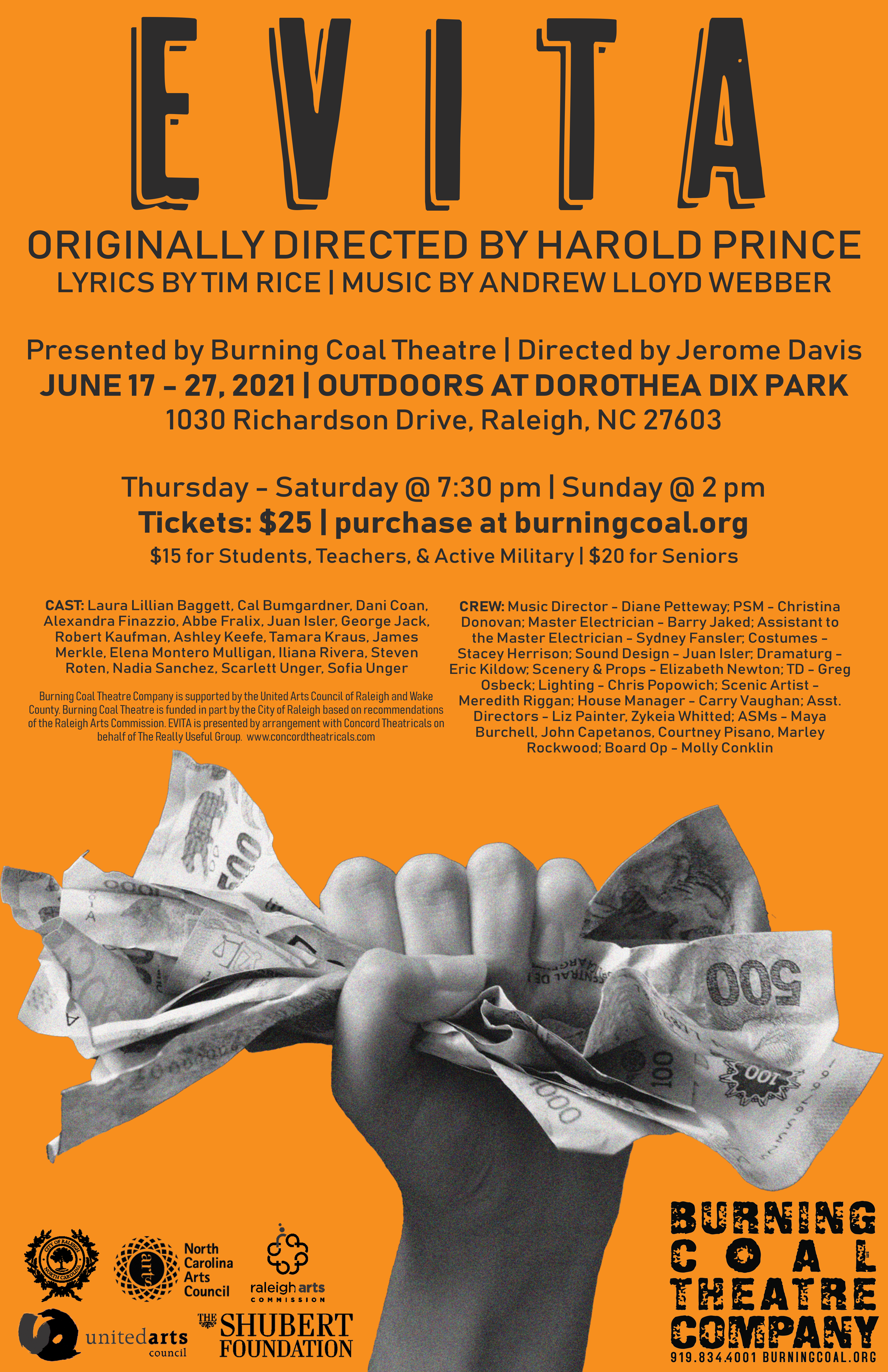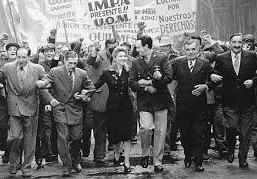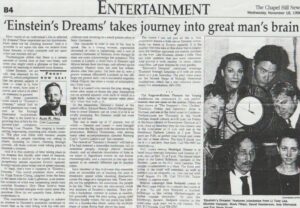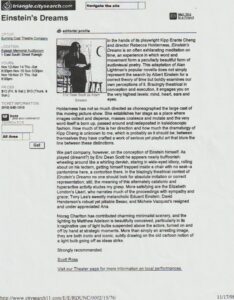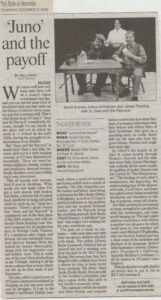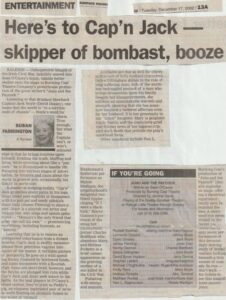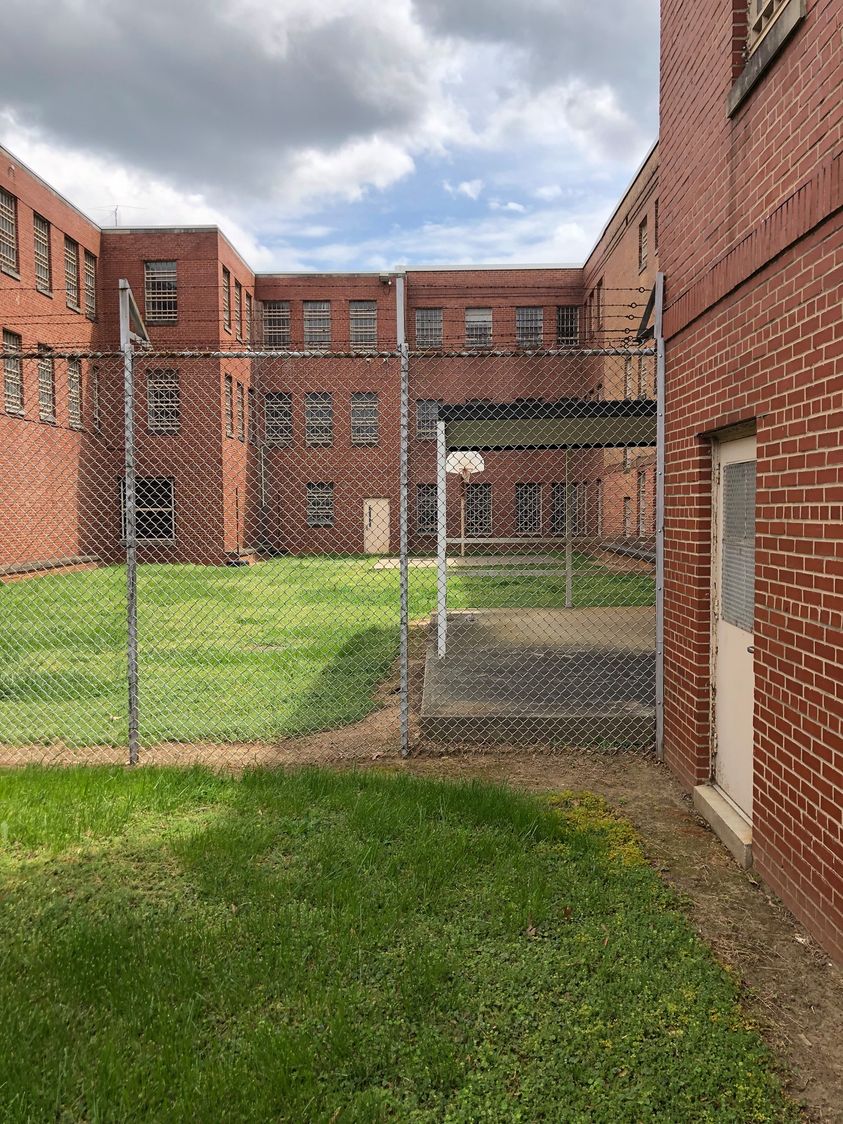
Through the Years Timeline:
Season 1: (1997-1998)
Rat in the Skull
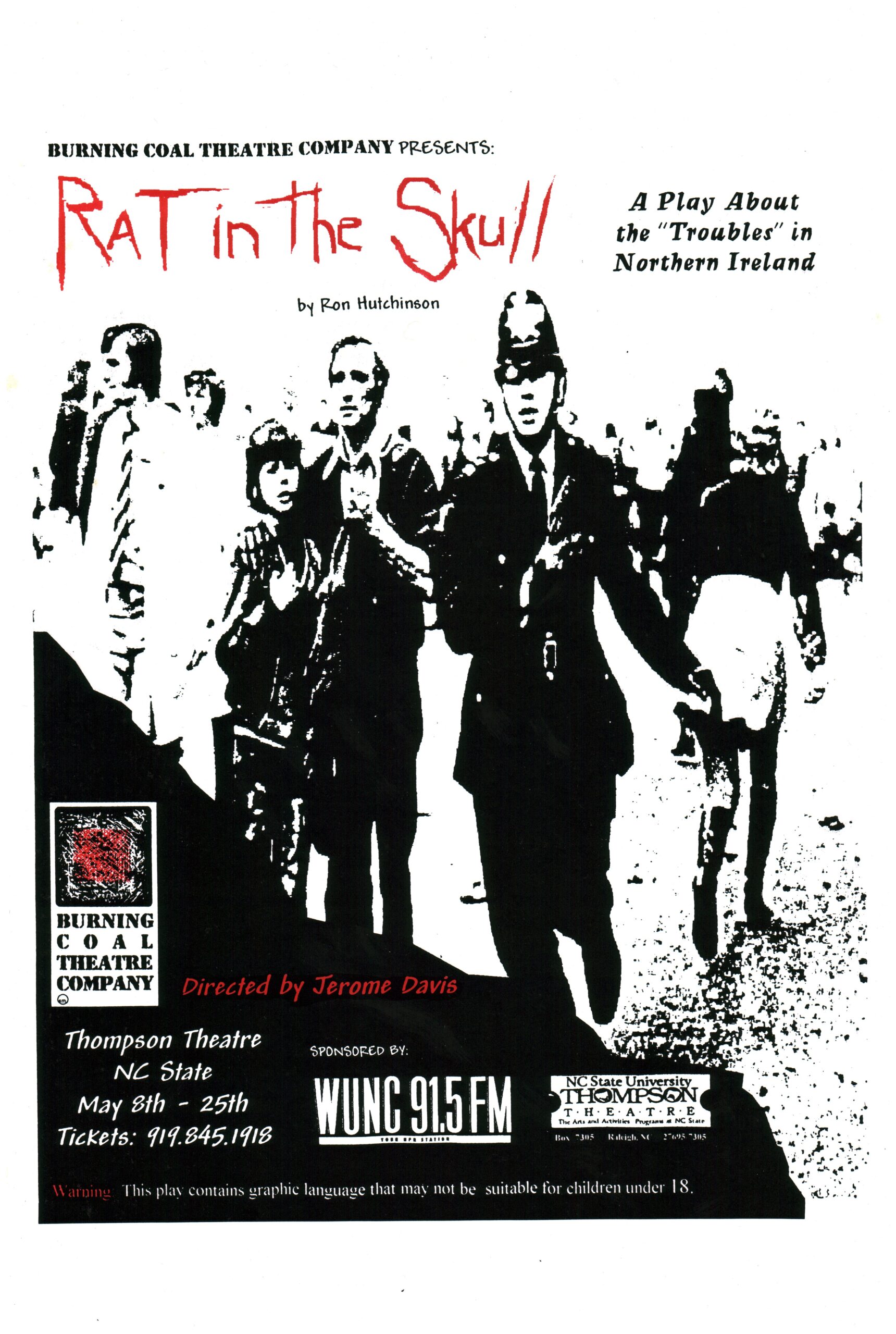
Rat in the Skull by Ron Hutchinson
Dir. Jerome Davis
Dates: May 8-25 1997
Location: NCSU Thompson Theatre
Love's Labours Lost
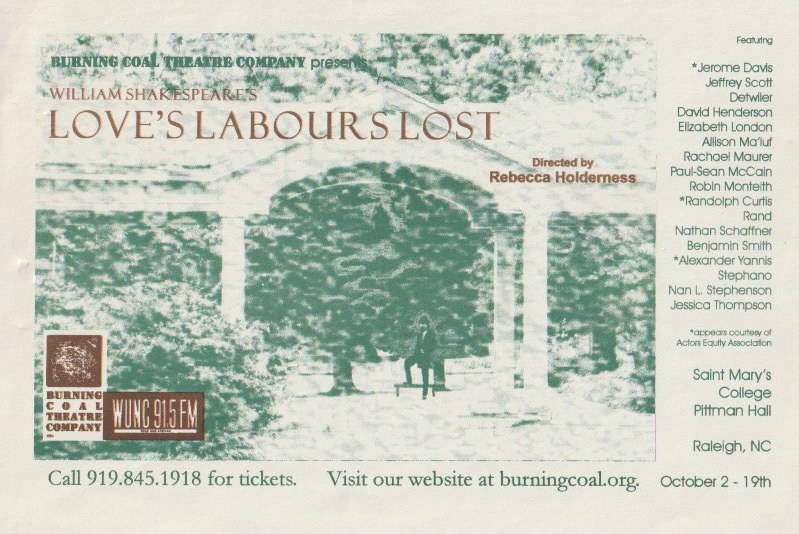
Love’s Labours Lost by William Shakespeare
Dir. Rebecca Holderness
Dates: October 2-19 1997
Location: Saint Mary’s College Pittman Hall
Pentecost
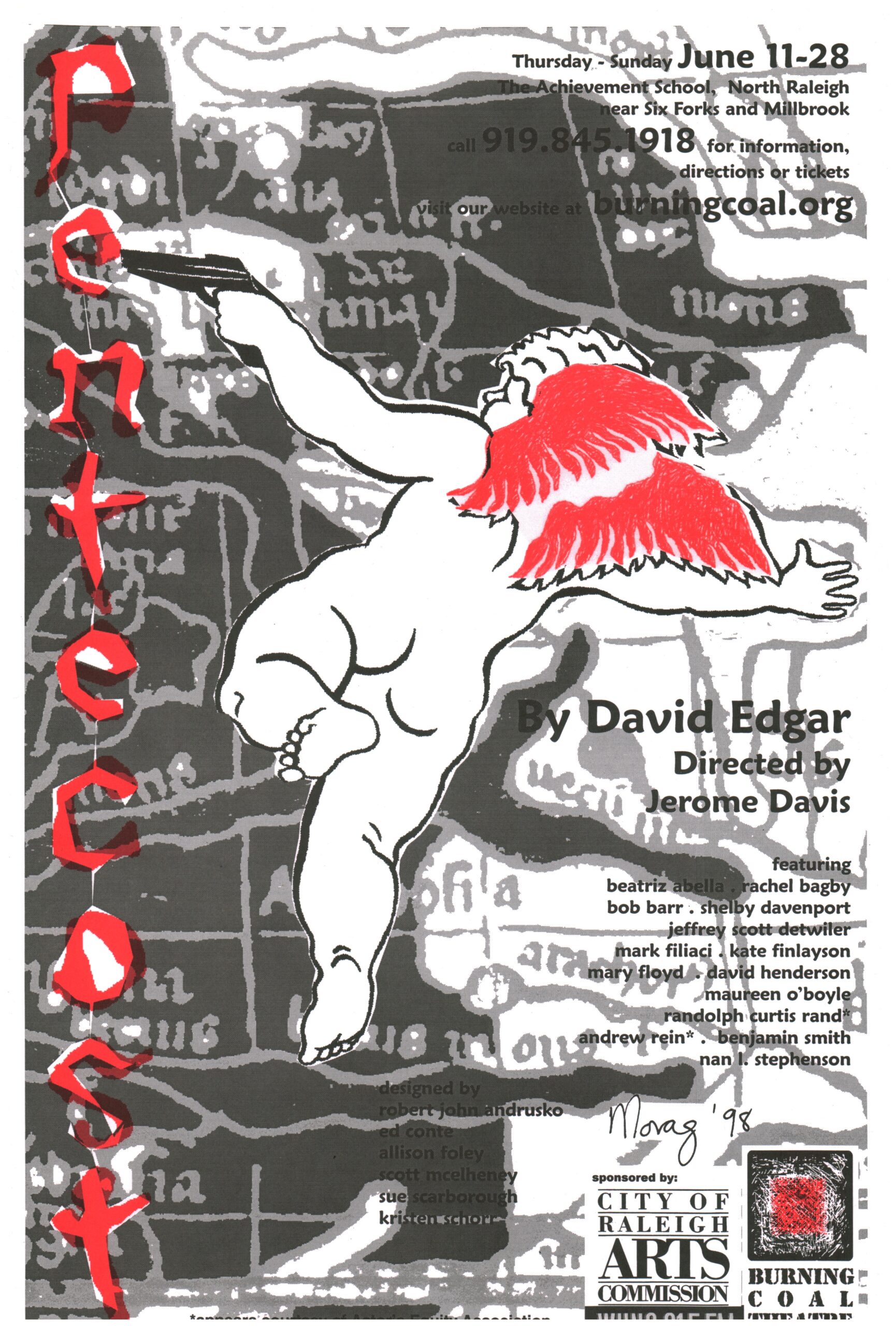
Pentecost by David Edgar
Dir. Jerome Davis
Dates: June 11-28 1998
Location: Achievement School
Rat in the Skull
Rat in the Skull by Ron Hutchinson
Dir. Jerome Davis
Dates: May 8-25 1997
Location: NCSU Thompson Theatre
Artistic Director’s Notes:
The first season of a theater must proclaim “here we are and here we stay” (to borrow from Ron Hutchinson), this is what and who we are and what we hope to do. The first season must capture the imagination of the core audience: that small but essential group upon whose shoulders a theatre will be carried to the larger world. We thought about scripts, read and re-read plays. We pondered “relevance,” “integrity” and even “marketability,” spent countless hours thinking about what other theatres had done and how they had done it…
And then we threw it all out. RAT IN THE SKULL is the play to begin Burning Coal’s life, not because I am madly in love with Ron’s rich language and rough wit (I am); not because I am infuriated with the senseless and seemingly ceaseless human carnage that pre-dates us all (I am); and not because I believe everyone will be interested in Detective Inspeector Nelson, “Demon Bomber” Roch and the rest (I do).
RAT IN THE SKULL is the play to open Burning Coal’s first season because it is a play that sifts through the black depths of human despair and misery, that claws toward light through the vast human ability to inflict wounds upon itself and finds a simple hope: that change is possible. That despite our worst instincts and fears and brutalities, finally a man may say, not to the world but to himself, “Enough. I’ve had enough.”
An audience for serious art exists less and less in the world we’ve made for ourselves; art that stops our breath, that shakes us. That means more and more there is a need. I wish that in the coming years Burning Coal Theatre Company could be the answer to your every artistic need, but that is a pipedream. I will settle for a few needs met, a few dreams realized, and a few cries of “Enough.” After all, “Here we are and here we stay!” isn’t just the plaintive shout of a rowdy Irishman or a nervous Artistic Director, it is also the sound of a baby coming blindly into the world. Burning Coal is your baby, now.
Jerome Davis, April, 1997
Crew:
Dramaturg: Jennifer Wollerman
Stage Manager: Paul-Sean McCain
Scenery Design: Simmie Kastner
Lighting Design: Scott McElheney
Costumes Design: Jason Bishop
Props: Kelly Buynitzky
Video design: John Pickle
Marketing: DayLight Enterprises, Inc.
Vocal Coach: Mari Lippig
Assistant to the Director: Marcia Sofely
Lighting Operator: John Patrick
Technical Director: Ed Conte
Cast:
David Dossey – Nelson
David Henderson – Roche
Glen Matthews – Naylor
John Murphy – Harris
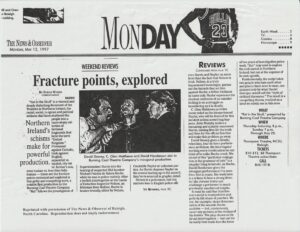
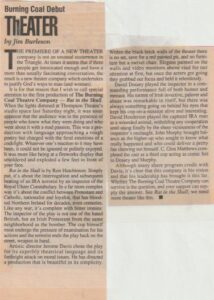
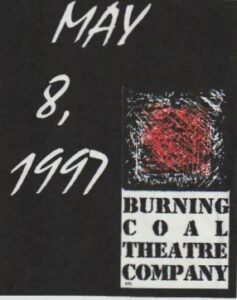
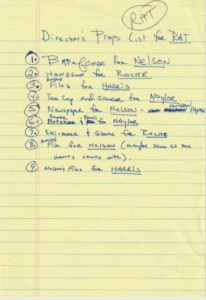
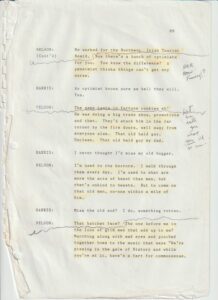
Have a fond or interesting memory of this play you’d like to share with us? We’d love to hear it!
Please Contact Us to Share!
Burning Coal Theatre
(919) 834-4001
224 Polk St., Raleigh NC 27604
Played May 8-25, 1997: Rat in the Skull
Love's Labours Lost
Love’s Labours Lost by William Shakespeare
Dir. Rebecca Holderness
Dates: October 2-19 1997
Location: Saint Mary’s College Pittman Hall
Artistic Director’s Notes:
I was involved in a production of “the Scottish Play” once up North. The cast was pretty fine. Several have since gone on to TV and Broadway careers. But the poor young man who was cast as M! WOW! He was as miscast as ever an actor I’ve seen. To begin with he was tall. He was also gawky in a way that does not readily bring to mind any of Shakespeare’s “serious” roles. Bad reviews all around. People walking out in the middle of the last Act. Frankly, he looked silly in his little tights and armor and sword. His baby face, curly hair and upturned nose didn’t help.
I wonder how then, one night, well into the run. He managed to bring an audience of three hundred or so hardened New Jersians so stock-still silent that they nearly cracked like ice when he began to speak “Tomorrow and tomorrow and tomorrow.” I wonder if he knew that his own unseasoned voice had ripped open like a fissure to expose an understanding of mortality beyond his years. And finally, I wonder why I cried silently that night, as so many of us behind the painted scenery did, realizing that he had finally found the part.
Shakespeare comes at us from out of the shadows, if ever at all. And that’s where we must go to him and his truths. If you’ve ever seen Shakespearethat is clean and sharp and bright, then you’ve one up on me. Oh, I’ve seen those productions. But I haven’t seen Shakespeare there. Even his bright plays, like Midsummer or As You Like It are set darkly, because that is where the soul lies, very close to the woods. The young man playing M that night had not been very close to that edge, having lived a lovely, sheltered life of academia and ivory towers. But that night, he saw it. It opened before him. His name was Marcus Giammatti, by the way. His father was Bart Giammatti, the Yale President/Commissioner of Baseball who had died the year before, in his fifties, in the midst of a great career and great life.
It may be just a fluke that Marcus hit a homer that night, the odds in his favor. Enough monkeys in a room typing will eventually blah blah blah. Or it may be that Shakespeare built him a road 400 years earlier, a path of language, of words that lead him to an understanding of humanity and its fragility, and Marcus, after stumbling around as he would do, finally went across. My guess is that when Marcus walked into the shadows that cold October night in New Jersey, there was someone there waiting to greet him, to warm him and to carry him home. Shakespeare was a man. But his words are something more.
Jerome Davis, September, 1997
Crew:
Stage Manager: Gail P. Hall
Dramaturg: Deborah Kramer
Choral Director: Alison Lawrence Smith
Vocal Coach: Be Boyd
Assistant Stage Manager: Tess Crane, Hillary Hart Paul
Scenery Designer: Simmie Katsner
Lighting Designer: Scott McIleney
Costumes and Props designer: David Serxner
Light Board Operator” Michelle Barskile
House Manager: Betty Bucci
Poster/Mailer Graphics: William Lightfoot
Costume Cre: Shannon Garlick, Paige Meyers, Sarah Nauhaus, Christine Rapp
Painting: Morag Charlton
Cast:
Nick Beard – Holofernes
Jerome Davis – Boyet
Scot Detwiler – Dumain
David Henderson – The King of Navarre
Elizabeth London – Maria
Allison Ma’luf – Katherine
Rachael Maurer – Moth/Jacquenetta
Beth Carroll – Dull
Robin Monteith – Rosaline
Randolph Curtis Rand – Don Armado
Michelle Barskile – Marcade
Jim Krist – Sir Nathaniel
Benjamin Smith – Longaville
Alexander Yannis Stephano – Berowne
Nan L. Stephenson – Costard
Jessica Thompson – Princess of France
Chorus:
Ana Benschop, Megan Brett, Kat Campbell, Vanessa Durand, Erin Kate Grady, Gracie Patterson, Krissy Smith, Kristin Tucker
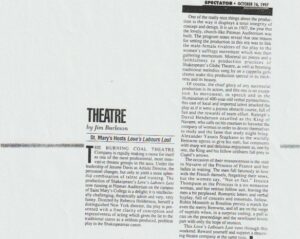
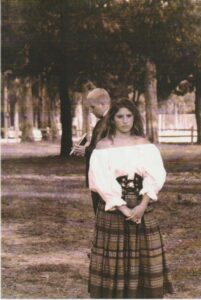
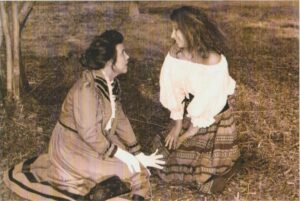
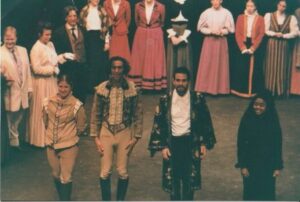
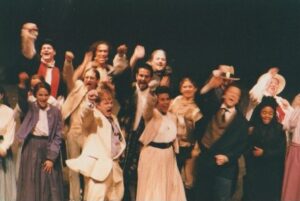
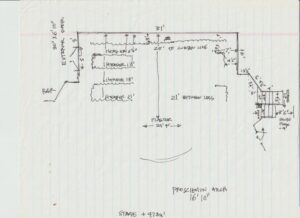
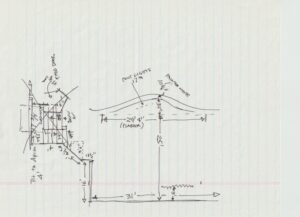
Have a fond or interesting memory of this play you’d like to share with us? We’d love to hear it!
Please Contact Us to Share!
Burning Coal Theatre
(919) 834-4001
224 Polk St., Raleigh NC 27604
Played October 2-19 1997: Love's Labours Lost
Pentecost
Pentecost by David Edgar
Dir. Jerome Davis
Dates: June 11-28 1998
Location: Achievement School
Artistic Director’s Notes:
If you had $100 to spare, you might have seen David Edgar’s adaptation of Dickens’ Nicholas Nickleby at the RSC or on Broadway back in the early 80s. A few Helena Bonham-Carter fans may have rented the film Lady Jane, which has a fine screenplay by Mr. Edgar. The chances are, though, that only a handful will have sat in a theatre for an evening and listened to his idas, his words, his love of language, his passion for and belief in the theatre as a societal elixir. The problem of Edgar, for American audiences, has been his tendency toward the propagandistic (he has worn his Socialism like a badge) and his extreme “Britishness.”
Pentecost came as a revelation, then, as do all “masterpieces.” Sometimes, perhaps all the time, when an artist loves and holds firmly to certain ideas or ideals, they become limiting. The audience who knows and loves the work comes to expect a “thing” and when they get the “thing” they are satisfied. For the moment. But the artist’s work stagnates, and the audiences does not develop, evolve. With Pentecost, the old dog Edgar pulled off the rarest of feats: a new trick. He stopped telling us what to think, which is what even the best-intentioned propaganda does, and started telling us what we do think, which is what all true art does.
In her critical analysis “Edgar the Playwright,” Susan Painter tells us that an early title being considered for the play was The Space on the Wall, referring to the question” if the pictures of Lenin have been taken down, what pictures then were to replace them? That is an apt theme for Pentecost and for the “new” playwright, David Edgar. Socialism, Marxism, Communism were the “isms” that ostensibly held the Iron-Curtained Europe together for half a century. In truth, as we have learned since the fall of the Curtain, Totalitarianism was holding people together, or to be more precise, keeping them from segregating themselves, their lands, their cultures through any means necessary. With the fall of the Curtain, those peoples have been given a gift and a curse: The F-word. Freedo. Freedom to set up governments, economies, religions, borders, and laws. Freedom to share one’s culture, one’s self, in essence, with those who are not you, are not like you, maybe don’t want to know about you or don’t know they want to know about you.
Edgar’s play doesn’t tell us what the European systems of the future should be, as the younger man might have. He doesn’t tell us what to think or how to think. He paints the reality of what we are thinking and asks us, through Pentecost, to consider the massive responsibility of the F-word and to not, perhaps, carry the responsibility lightly. Purposefully, the first words we hear in the play are “So, this is it?” The last word is “free.”
A tough challenge, to carry your freedom, your responsibility toward society seriously. What might it mean for Americans, we who are not at the forefront of the battle (right now)? With Pentecost, David Edgar has simply and urgently proposed replacing the “space on the wall” not with a painting, but with a door. The play is not an answer, it is a map.
Jerome Davis, May 1998
Crew:
Stage Manager: Deborah Kramer
Technical Director: Ed Conte
Scenery Designer: Robert John Andrusko
Lighting Designer: Scott McElheney
Costume Designer: Alison Ray Foley
Properties: Sue Scarborugh and Kristen Schorr
Dramaturgs: Anthony Fichera and Jennifer Wollerman
Assistant to the Director” Michael Smith
Vocal Coach: Be Boyd
House Manager: Dena Morris
Assistant Stage managers: Tess Crane and Krissy Smith
Co-Producer: Joan Cheng
Scenic/Artists: Morag Charlton, Simmie Kastner, Sally Conte
Fight Choreographer: Michael Kamtman
Dialects: Kevin Cook, Rkia Cornell, Robert Greenberg, Bryce Johnson, Michael Newcity, Ingrid Nillson, Evin Suzal, Jayne Wheeler
Cast:
Beatriz Abella – Yasmin
Bob Barr – Bojovic/Commando/Restorer
Kelly Buynitzky – Secretary/Marina
Shelby Davenport – Grigori/Soldier
Jeffrey Scott Detwiler – Raif/Soldier
Mark Filiaci – Karolyi
Kate Finlayson – Gabriella Pecs
Mary Floyd – Amira
Dana Gillihan – Cleopatra/Policewoman
David Henderson – Czaba/Nico
Naureen Cecilia O’Boyle – Girl/Toni/Commando
Randolph Curits Rand – Oliver Davenport
Andrew Rein – Leo Katz
Benjamin Smith – Pusbas/Swedish Man/Abdul/Restorer
Nan L. Stephenson – Anna Jedlikova/Fatima
Adam Twiss – Antonio/Goon
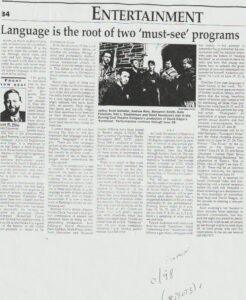
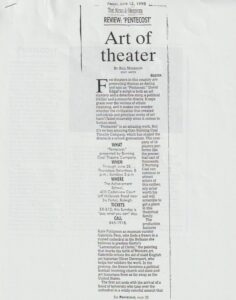
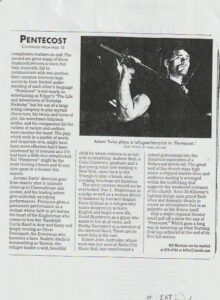
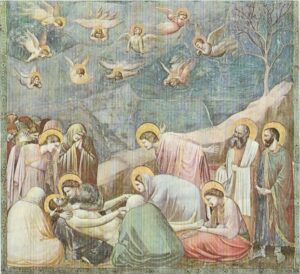
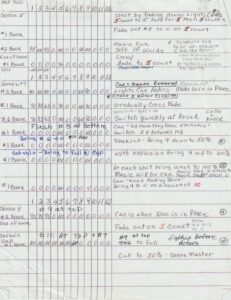
Have a fond or interesting memory of this play you’d like to share with us? We’d love to hear it!
Please Contact Us to Share!
Burning Coal Theatre
(919) 834-4001
224 Polk St., Raleigh NC 27604
Played June 11-28 1998: Pentecost
Season 2: (1998-1999)
Winding the Ball
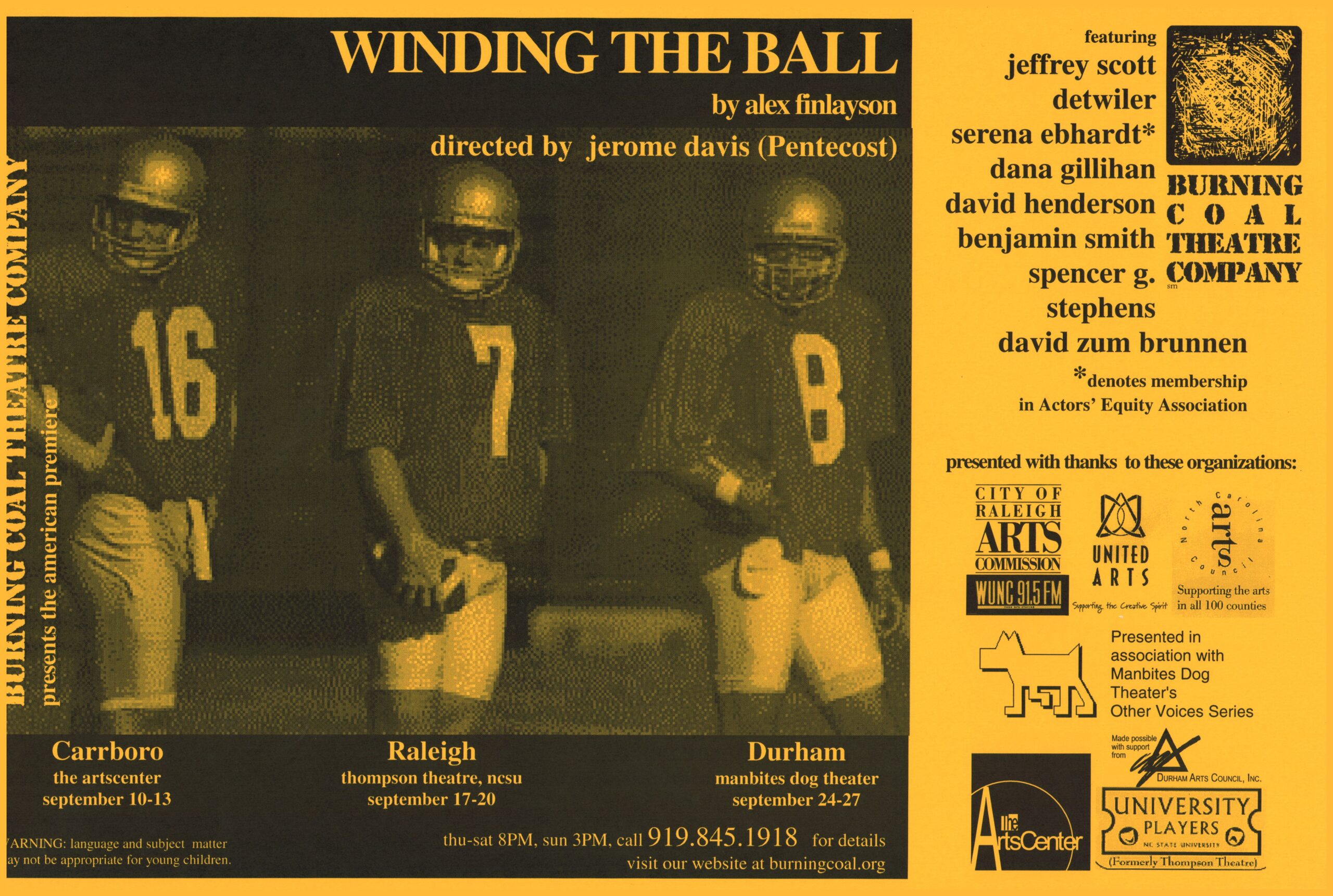
Winding the Ball by Alex Finlayson (American Premiere)
Dir. Jerome Davis
Dates: September 17-27 1998
Location: The ArtsCenter, Thompson Theatre, Manbites Dog
Einstein's Dreams
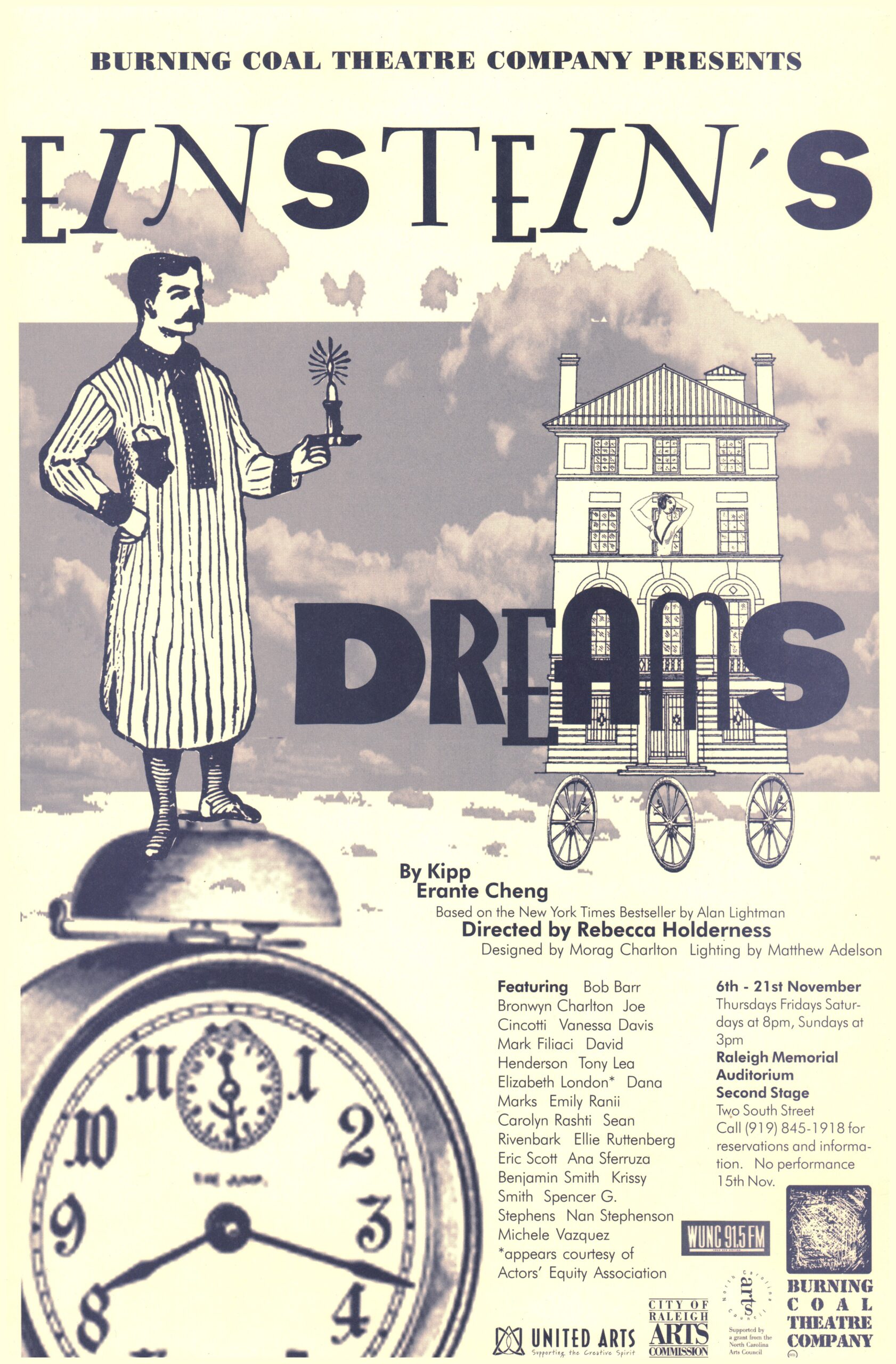
Einstein's Dreams by Kipp Erante Cheng based on the novel by Alan Lightman
Dir. Rebecca Holderness
Dates: November 6-21 1998
Location: Raleigh Memorial Auditorium Second Stage
A Question of Mercy
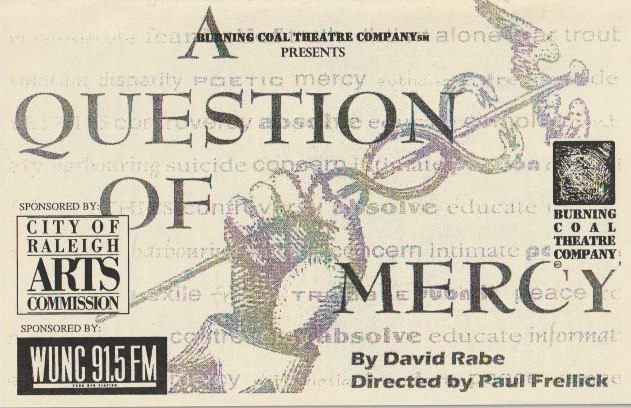
A Question of Mercy by David Rabe based on New York Times Magazine Essay by Richard Selzer
Dir. Paul Frellick
Dates: February 11-28 1999
Location: Tire Shop Gallery
The History of King Henrie the Fourth
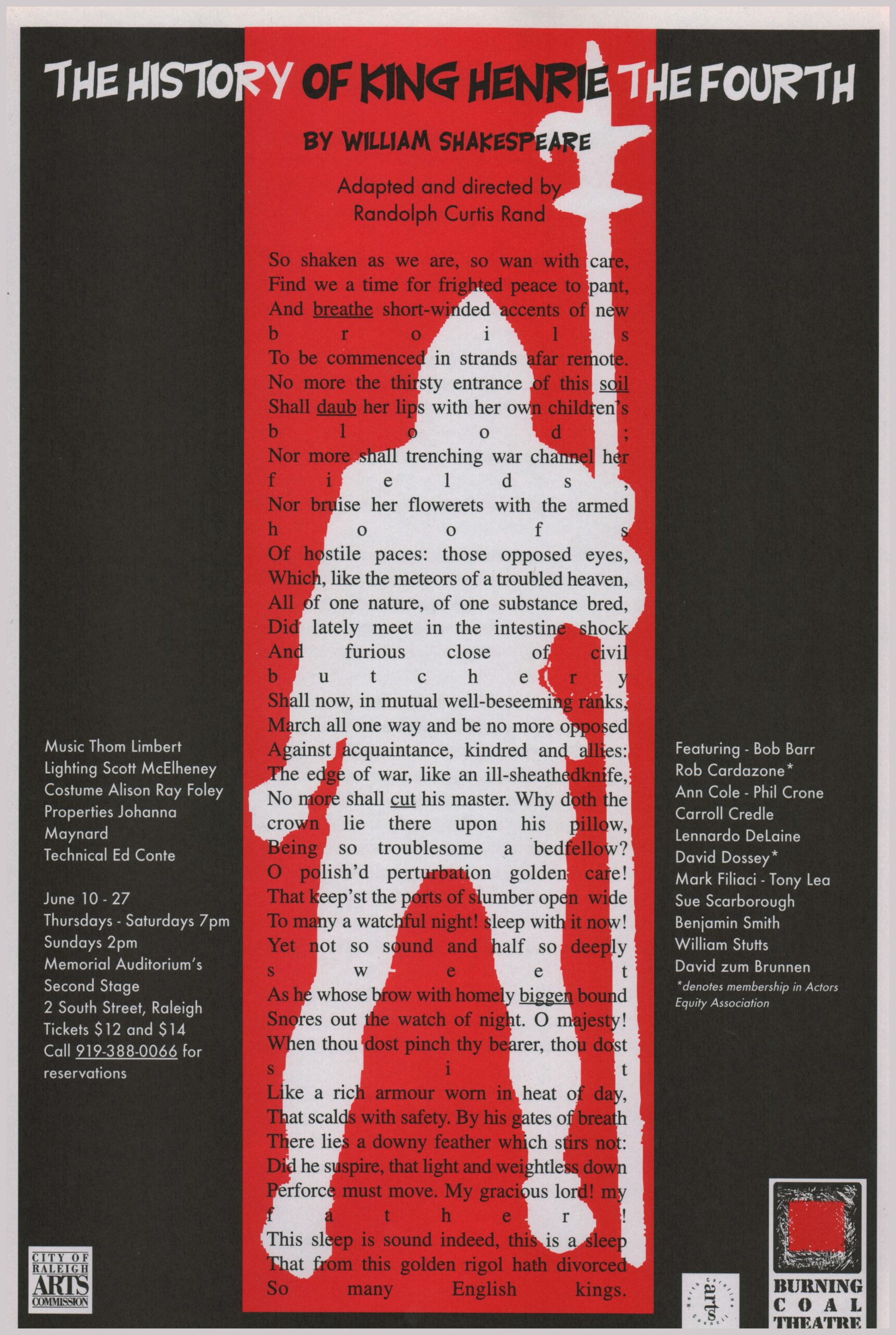
The History of King Henrie the Fourth By William Shakespeare, Adapted by Randolph Curtis Rand
Dir. Randolph Curtis Rand
Dates: June 10-27 1999
Location: Raleigh Memorial Auditorium Second Stage
Winding the Ball
Winding the Ball by Alex Finlayson (American Premiere)
Dir. Jerome Davis
Dates: September 17-27 1998
Location: The ArtsCenter, Thompson Theatre, Manbites Dog
Artistic Director’s Notes:
New plays are, I believe, the theatre’s reason for being. There’s nothing more exciting that wondering if this one is the one. A few times this century unsuspecting audiences have sat in a dim theatre among strangers and seen, for the first time as an audience, a Krapp’s Last Tape or hung out at the Public Theatre for yet another “Vietnam” play (Streamers) that made most of us forget all other Vietnam plays. In South Africa sometime before most of us were born, a straggled, mixed-race audience opened its eyes to the first words ever written by Athol Fugard. Who first heard Shepard’s bizarre stream-of-consciousness? Did they recognize it for genius? What about the works of Caryl Churchill? And that first audience at the Royal Court who walked in on a play called Look Back in Anger and saw their world change before their eyes in a couple short hours? Did they recognize? Did they see? Kenneth Tynan was there and saw and wrote that he did not know if he could ever love someone who did not love the play.
American Theatres have not been quick to welcome new playwrights into the repertory. Economics have a lot to do with it. England, which puts us to shame in this area, is something of a socialist state in that it subsidizes its theatres, its arts and artists so that failures are acceptable in anticipation of the one great work. Ireland is a different matter. The 20th century has been one long hot streak for Irish writers from Shaw, Beckett and Wild to Frank McGuiness and Brian Friel to the new wave of Conor Mcpherson, Marina Carr and Martin McDonaugh. A cultures that celebrates storytelling in all its simplicity has bred, well, storytellers, playwrights. It is a sad story that ten years after Winding the Ball premiered in Manchester, England at the Royal Exchange, a theatre in America is finally doing it, not only because it is a good play or a timely play, but because it is the work of an artist.
Later in this season of premiers, we will present the world premiere of Kipp Erante Cheng’s Einstein’s Dreams based on the novella by Alan Lightman, the North Carolina premiere of David Rabe’s A Question of Mercy and the world premiere of Randolph Curtis Rand’s adaptation of The Two Parts of Henry IV by William Shakespeare. Tonight, Burning Coal is proud to show you, for the first time in her homeland, Ms. Alex Finlayson’s Winding the Ball.
Jerome Davis, August 1998
Crew:
Stage Manager: Sarah Ferguson
Technical Director: Edward Conte
Properties Design: Kelly Buynitzky
Sound Design: Rowell Gormon
Scenergy Design: Simmie Kastner
Lighting Design: Scott McElheney
Costume Design: Krysta Curl
Production Dramaturg: Anthony Fichera
House Management: Nan L. Stephenson
Cast:
Jeffrey Scott Detwiler – Claude
Serena Ebhardt – Jannie Lambert
Dana Gillihan – Leona
David Henderson – Deemer
Benjamin Smith – Everybody else
Spencer G. Stephens – Father
David zum Brunnen – Robb Lambert
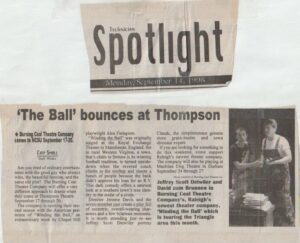
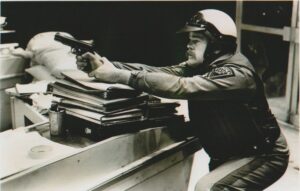
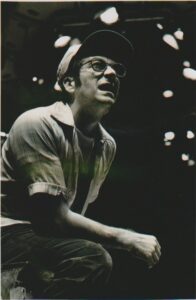
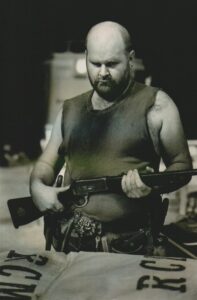
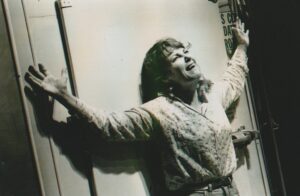
Have a fond or interesting memory of this play you’d like to share with us? We’d love to hear it!
Please Contact Us to Share!
Burning Coal Theatre
(919) 834-4001
224 Polk St., Raleigh NC 27604
Played September 17-27 1998: Winding the Ball
Einstein's Dreams
Einstein’s Dreams by Kipp Erante Cheng based on the novel by Alan Lightman
Dir. Rebecca Holderness
Dates: November 6-21 1998
Location: Raleigh Memorial Auditorium Second Stage
Artistic Director’s Notes:
Albert Einstein may be the most significant figure of the 20th century. Most of his challengers for that position are the horrific kind: Hitler, Stalin, Mao Tse Tung. Einstein’s thoughts boom down the corridors of our age, daring even the most spectacularly disinterested of us to consider the Great, the Powerful, the Everlasting. He was a cerebral celebrity, a flamboyant figure whose work was dreams most of us could never comprehend, while keeping one eye peeled for the camera. A private man in a public place, like an actor digging into the psyche of, say, James Tyrone, in a 1500 seat Broadway house. Theatre and Physics have similarities not altogether obvious. In theatre, a world is explored. If the play is any good, it is an unseen world: the silences of the Pinter landscape, the undercurrent of passion in Chekov, the fire behind Shakespeare’s languid verse, the detailed maps of loss and remembrance in Sam Shepard’s work. Physics, too, seeks to understand the ultimate unknowable: what we are made of, why we exist.
A few decades back someone reported, as though it were the Last Word, that “God is dead.” The issue of course was not settled and will not be settled, not by Physics, not by Theatre. If there is no God, then there is nothing to find and we will keep on looking forever. If there is a God, do we really think we’ll be able to corner Him? How? By building a big enough space ship to get there? A big enough telescope to see? A good enough work of art that we all finally understand? Perhaps God is to be glimpsed, if at all, in the imperfections of art and science, for that is what we are most often: imperfect, self-conscious, but searching.
Einstein’s Dreams will, I hope, be an imperfect play. I hope the seams will show, the sweat will flow. Albert Einstein believed that creativity was more important than intelligence. At the end of his search, God was more real for him, more important to him, than ever before. His search widened with time, out of the realm of the intellectually palpable and into the realm of the creative. And as this, the American Century, moves to a close, we find ourselves drawn into the imagination of a short, pudgy, wild-haired Jewish guy, a European and all that America was to become, the Holocaust victim and the victor, a recluse and a rock star, a boy who did poorly in school and went on to dream things that had never been dreamed, leaving our world forever changed.
Jerome Davis
Crew:
Stage Manager: Melissa Ricketts
Scenery and props: Morag Charlton
Technical director: Edward Conte
Production Dramaturg: Anthony Fichera
Costumes: Sue Scarborough
Lightng: Matthew Adelson
Assistant to the director” Martha Sorensen
Original Music: Thomas Limbert
Assistant Stage Manager: Sarah Ferguson
Production Assistant: Christine L. Boehm
Poster Design: Morag Charlton
Cast:
Mark Filiaci – Hans
David Henderson – Besso
Tony Lea – Eduard
Elizabeth London – Liserl
Eric Dean Scott – Albert Einstein
Ana Sferruzza – Mileva
Michele Vazques – Ana
Ensemble:
Bob Barr, Bronwyn Charlon, Vanessa Davis, Jeff Isleib, Emily Ranii, Carolyn Rashi, Sean Rivenbark, Ellie Ruttenberg, Benjamin Smith, Krissy Smith, Nan L. Stephenson
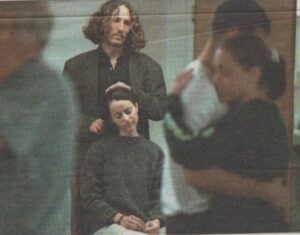
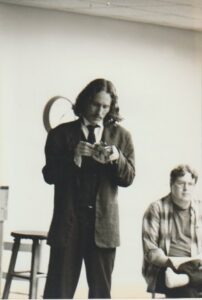
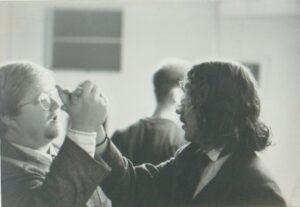
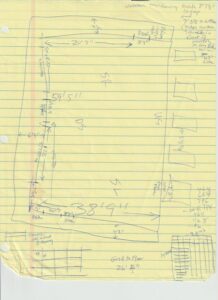
Have a fond or interesting memory of this play you’d like to share with us? We’d love to hear it!
Please Contact Us to Share!
Burning Coal Theatre
(919) 834-4001
224 Polk St., Raleigh NC 27604
Played November 6-21 1998: Einstein's Dreams
A Question of Mercy
A Question of Mercy by David Rabe based on New York Times Magazine Essay by Richard Selzer
Dir. Paul Frellick
Dates: February 11-28 1999
Location: Tire Shop Gallery
Artistic Director’s Notes:
Some things I never let my father see. The Velvet Underground 1969 album, well worn. The collection of Creem (don’t ask if you don’t know), and my copy of a play discovered in my mid-teens that had blown me away. Just knocked me about the room. It was called Streamers and it was by a playwright with the exotic name “Rabe.”
A speech from the play became my “can’t miss” audition piece. I tried others, but always came back to Rabe. Once, a know-it-all college professor tried to convince me the man’s name was pronounced “Rob-eh.” I wouldn’t bite.
Later, a newspaper staff convention trip took me to Memphis and my first visit to a real city (Nashville doesn’t count). Tattered posters around town advertised a production of Streamers and an appearance by Iggy Pop. Both events had happened weeks before I got to Memphis. I can’t remember which I was more disappointed to have missed. Probably Iggy. since I knew I would someday direct the Rabe. Had directed it, in my mind, many times.
Robert Altman made a film version of the play with Matthew Modine. It didn’t get the job done. Rabe went away for awhile. Wrote some very bad screenplays. Then Hurlyburly in the 80s. I studied with Julie Bovasso in New York City and saw two actors, otherwise pretty average, light up the place with a scene from something called In the Boom Boom Room. More Rabe.
I met Jack Willis, who’d done Those the River Keeps at the A.R.T. He was a bull, a wildcat, a country boy from Kansas who was born to play in the City of Rabe. Saw him do an unpublished Rabe called Cosmologies, which was about 400 pages of the most garbled crap you ever saw. It was mesmerizing. Not good, but great. No one, I think, has done it since. Too bad.
My Velvets collection is now proudly displayed. I am well past my Creem phase. But the Rabe, somehow remains hidden, secret from even my nearest. It’s a personal thing. Here’s a bit of it, a dollop, his newest published text. I hope you like it. There’s more where that came from, but you might have to dig to find it. Rabe on!
-Jerome Davis, January 1999
Director’s Notes:
As Peter Filene points out in his history of the Right-to-Die in America, In the Arms of Others, death was a familiar occurrence to Americans of the early 19th century. He quotes from a number of sources who matter-of-factly recount the deaths of loved ones or calmly anticipate their own. Since then, thanks to a myriad of medical advancements, life expectancies have lengthened dramatically, once-fatal disease have become treatable, and death has moved toward the margins of our popular consciousness.
It is in large part that increasing remoteness that makes physician-assisted suicide the political football it is, and at the same time makes it so difficult for us to address the issue reasonably. Looking at death in theoretical terms, we often perceive it as we do an object seen in the side-view mirror of a car, farther away than it really is; conversely, when we are forced to confront an individual’s demise, we often find ourselves too close to focus on the details before us. We are reluctant and ill equipped to grapple with this truly life-and-death matter. Consequently, as in the case of abortion, our national debate over assisted suicide has been characterized by rhetorical extremism: inalienable human rights on one side, death camps on the other.
The characters in A Question of Mercy know the torrid political and legal arguments for and against, but ultimately those constructs are of little use or comfort. ANthony’s allies are woefully unprepared by their experience, their value systems or their cultures to provide, or even determine precisely, what he most needs. As they desperately try to bring rationality to this discussion, even the language itself proves inadequate. “What are you saying?” the characters frequently ask each other. “What do you mean?” But though the play is rife with questions, including its title, answers are in very short supply.
Still, the characters’ struggle is a necessary one. As our world continues to evolve and technology alters our choices, we must learn again how to talk about death, to move beyond abstractions and confront it in all its difficult and individual particulars. Only then may we hope to come to terms with dying, and begin to consider our concomitant rights and obligations.
-Paul Frellick, January 1999
Crew:
Stage Manager: Sarah Ferguson
Production Design: James D. White
Costume Design: Sue Scarborough
Production Dramaturg: Anthony Fichera
Props: Katryne Hecht
Technical Director: James D. White
Production Consultant: Martha Sorensen
Sound Design: Al Singer
Assistant Stage Manager: Michelle Barskile
Cast:
David Bennett – Cop
Michael Brocki – Eddie the Doorman
Eric Carl – Thomas
Ricky Cortez – Anthony
Helen Hagan – Susannah
Tony Lea – Dr. Chapman
Benjamin Smith – Cop
Al Singer – Voice of Sportscaster
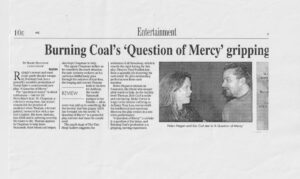
Have a fond or interesting memory of this play you’d like to share with us? We’d love to hear it!
Please Contact Us to Share!
Burning Coal Theatre
(919) 834-4001
224 Polk St., Raleigh NC 27604
Played February 11-28 1999: A Question of Mercy
The History of King Henrie the Fourth
The History of King Henrie the Fourth By William Shakespeare, Adapted by Randolph Curtis Rand
Dir. Randolph Curtis Rand
Dates: June 10-27 1999
Location: Raleigh Memorial Auditorium Second Stage
Artistic Director’s Notes:
Here we are at the end of our second season in Raleigh. We’ve had many, many ups and few downs. We’ve seen our audiences grow from the 13 daring souls who witnessed the first preview of Rat in the Skull to the sold out houses of Pentecost and Einstein’s Dreams. We’ve performed at the Mint in New York and at a Raleigh school gym with no air conditioning in June! I am happy to report that next season, we will have a single venue for all performances. Yes, you won’t have to search for Burning Coal next year, you won’t have to ask a friend, call for directions, consult internet mapfinders. We will be at Memorial Auditorium, the grand ole dame of Raleigh’s performance venues, and we will be there for the year!
Next season is an important one for us. We are growing into adolescence (never thought I’d have to go through that again!) The season includes four extraordinary plays. On,e you will have heard of. The other three, most likely not. The known quantity is Romeo & Juliet. Our dear friend, Rebecca Holderness will stage Shakespeare’s tragic love story next February. The other three plays are spectacular. Sebastian Barry’s The Steward of Christendom is one of the funniest and most heart-breaking stories I have ever heard, and deals with the King Lear-like relationship between an older man, the last police chief of Dublin under British Rule, and his three beloved daughters. Conor McPherson’s St. Nicholas will run in January .It has nothing to do with Santa Claus. It’s about a besotted theatre critic (ah ha!) who falls in love with a young actress and follows her to London and straight into a coven of vampires. It starts off like a good old fashion horror story, a campfire yarn, and blossoms into…well, you’ll have to see for yourself! Finally, Tom Stoppard (Shakespeare in Love)’s 1979 comedy/drama, Night and Day. Dame Maggie Smith Played the heroine on Broadway. The play has scarcely been since, not because it isn’t witty, intelligent, comical and brilliant as only Stoppard can be, but I think because of its fierce opposition to the blind behavior that loyalty to unions can engender and its uncompromising call for journalists to take responsibility for and to participate in the world around them. If you have turned on a television in the last five years, you know that no subject could be of greater importance to our “state.” Jefferson once hypothetically chose freedom of the press over any other freedom. In Night and Day, Stoppard asks the press to choose responsibility over expediency.
Laughs. Frights. Controversy. Passion. Topicality. Sounds like a Burning Coal season to me. I hope to see you there.
Jerome Davis May, 1999
Director’s Notes:
O.k- Here’s the problem. While the “lighter” characters in this play have straightforward, though descriptive names (“Fang”, “Shallow”, “Tere-Sheet”), and most use diminutives (“Jack”, “Ned”, “Doll”), what the “higher characters call themselves is a little more complicated.
To start with, there’s the sir name. All royalty has shown tremendous lack of imagination in this matter (they would say they “uphold tradition”). Thus, we have the King, Henrie IV, whose oldest son is called Henry, and next son is called John, after his grandfather. And we have Henry Percy, Earl of Northumberland, and his son … Henry Percy. Indeed, the nobility probably need the variety. What with all the Henrys, Johns, and Thomases, a council of Parliament might easily turn into a production of The Bald Soprano.
To make things simpler, these nobles sometimes use nicknames. Both King Henrie and Prince Henry are called “Harry”. But the Prince is also called “Hal”, so that helps. And Henry Percy (Fils) is called “Hot-Spurre”, so there’s no confusion with dad. But dad is usually called a name the royals used most often with each other; that of title. So Percy (Pere) is “Northumberland”, his brother “Worcester”, the King’s sons’ “the Prince of Wales”, “Lancaster”, “Gloucester”, “Clarence” (yes, Clarence is a title, his name is Thomas). These titles derive from actual counties in England that owed money and allegiance to their lord. It would be like someone calling you “North Raleigh” or me “Brooklyn” (well, “Fort Green” anyway).
Even simpler, the nobles just as often call themselves by where they were born. So, Henrie – “Harry” – “Hal” – Prince of Wales, is called Henrie “Monmouth”, his father Henrie “Bollingbroke”, and his father, John “of Gaunt”. Simpler still, though least used, is the family name. Edmund is called “Mortimer”, the Percys are called “the Percys”, and the King’s family is called “Plantagenet” (but only once)!
Simplest of all is the nice habit the nobility has of calling anyone of any relation to them “Cousin”. And Kings of different countries, who are no relation whatsoever, call each other “Brother”.
So, is everything clear?
O.k. On to spelling and pronunciation….
Randolph Curits Rand, May 1999
Crew:
Stage Manager: Dawn Young
Production Design: Randolph Curtis Rand
Production Dramaturgy: Anthony Fichera, Kirsten Shepard-Barr
Lighting Design: Scott McElheney
Props: Johanna Maynard
Assistant Stage Manager: Krissy Smith, Angela Spivey, Megan Brett
Fight Choreographer: Michael Kamtmann
Costume Design: Alison Ray Foley
Assistant Directors: mary Floyd, Michael Smith
Technical Director: Edward Conte
Lighting Operator: Chris Cragin
Movement Coach: Rebecca Holderness
Scenery Painter: Susan Genito
Welsh Lyrics: Dr. Miroslav Loncar
Cast:
Bob Barr- Archbishop of York/Justice Shallow/Sir Walter Blunt
Robert Cardazone – Henry (“Hal”), Princeof Wales
Ann Cole – John, Duke of Lancaster/Mortimer’s Wife/FfaLLstaLffe’s paige
Carroll Credle – Lord Chief Justice/Peto/Justice Scilens/Sir Richard VZernon
Phil Crone – Glendower/Warrick/harvey/Mowbray
Lennardo DeLaine – Northumberland/the Douglas/Mortimer/Humphrey. Duke of Gloucester/ Doll Teer-Sheet/Coleville
David Dossey – Sir John FfaLLstaLffe
Mark FIliaci – Kate Percy/Poyntz/Harcourt/Snare
Tony Lea – Henrie IV in Part 1/Mistress Quickly/Derrick/Davy
Sue Scarborough – Henrie IV in Part 2/Northumberland’s Wife
Benjamin Smith – Westmoreland/PistoLL/Morton/5 Recruits
William Stutts – Worchester/Lord Bardolfe/Thomas, Duke of Clarence
David Zum Brunnen – Harry Percy (“Hot-Spurre”)/Rumour/Hastings/Travers/Fang
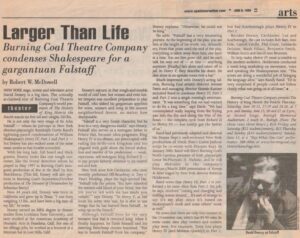
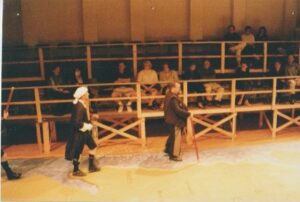
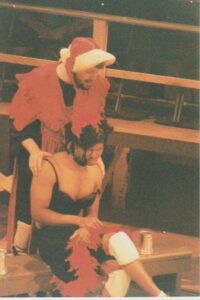
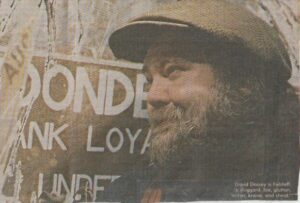
Have a fond or interesting memory of this play you’d like to share with us? We’d love to hear it!
Please Contact Us to Share!
Burning Coal Theatre
(919) 834-4001
224 Polk St., Raleigh NC 27604
Played June 10-27 1999 : The History of King Henrie the Fourth
Season 3: (1999-2000)
The Steward of Christendom
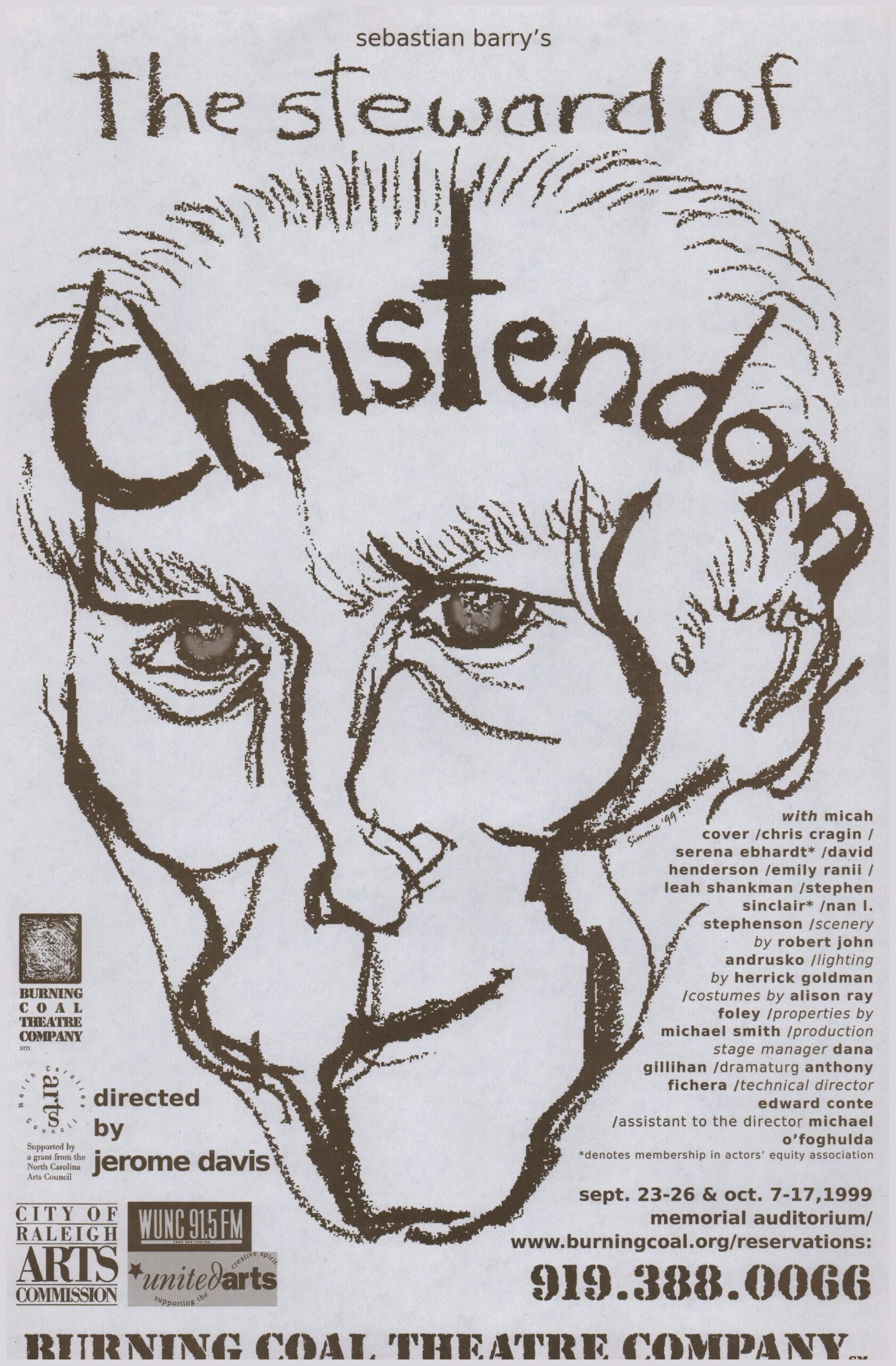
The Steward of Christendom by Sebastian Barry
Dir. Jerome Davis
Dates: September 23-26 1999
Location: Raleigh Memorial Auditorium Second Stage
St. Nicholas
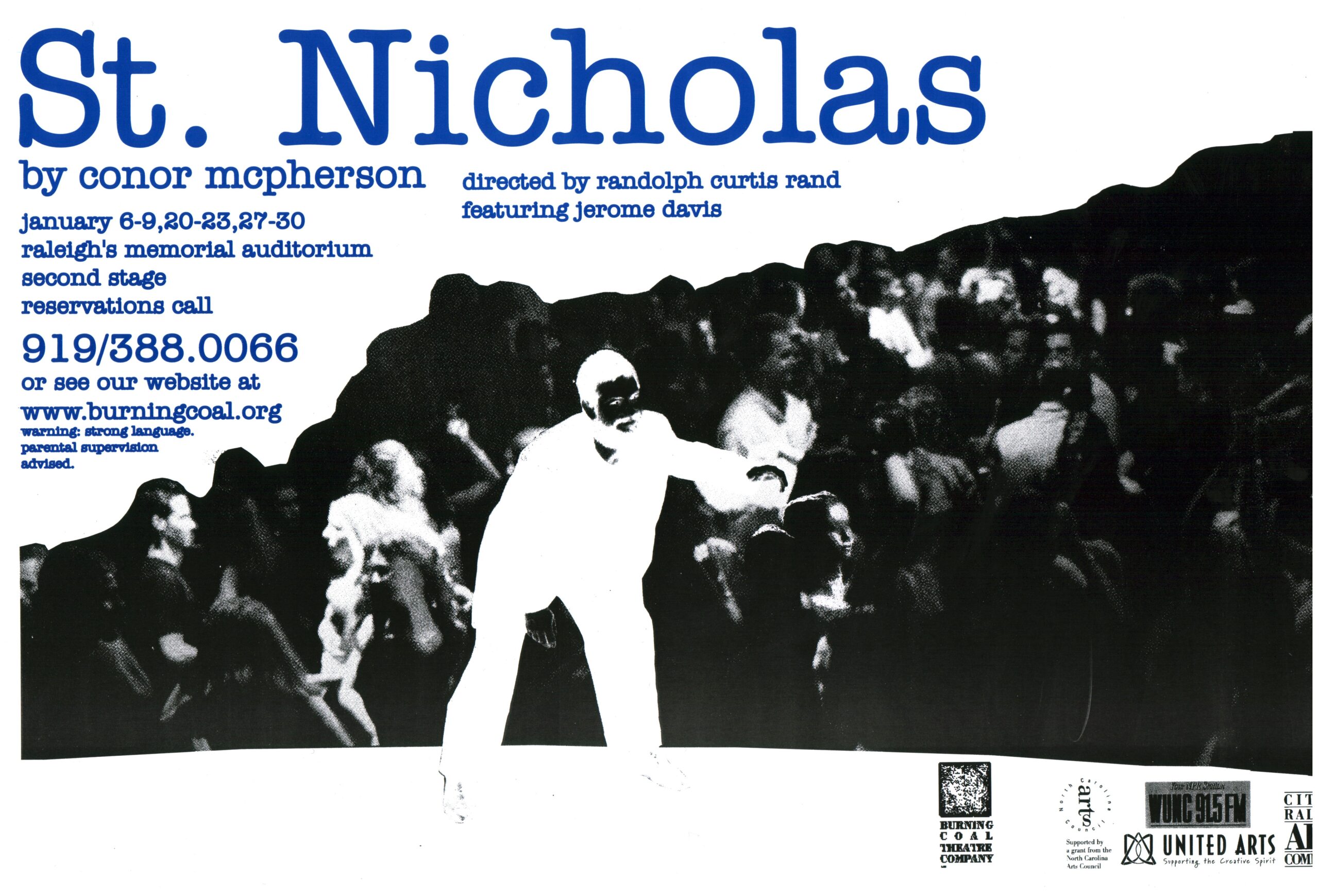
St. Nicholas by Conor McPherson
Dir. Randolph Curtis Rand
Dates: January 6-30 2000
Location: Raleigh Memorial Auditorium Second Stage
Romeo & Juliet
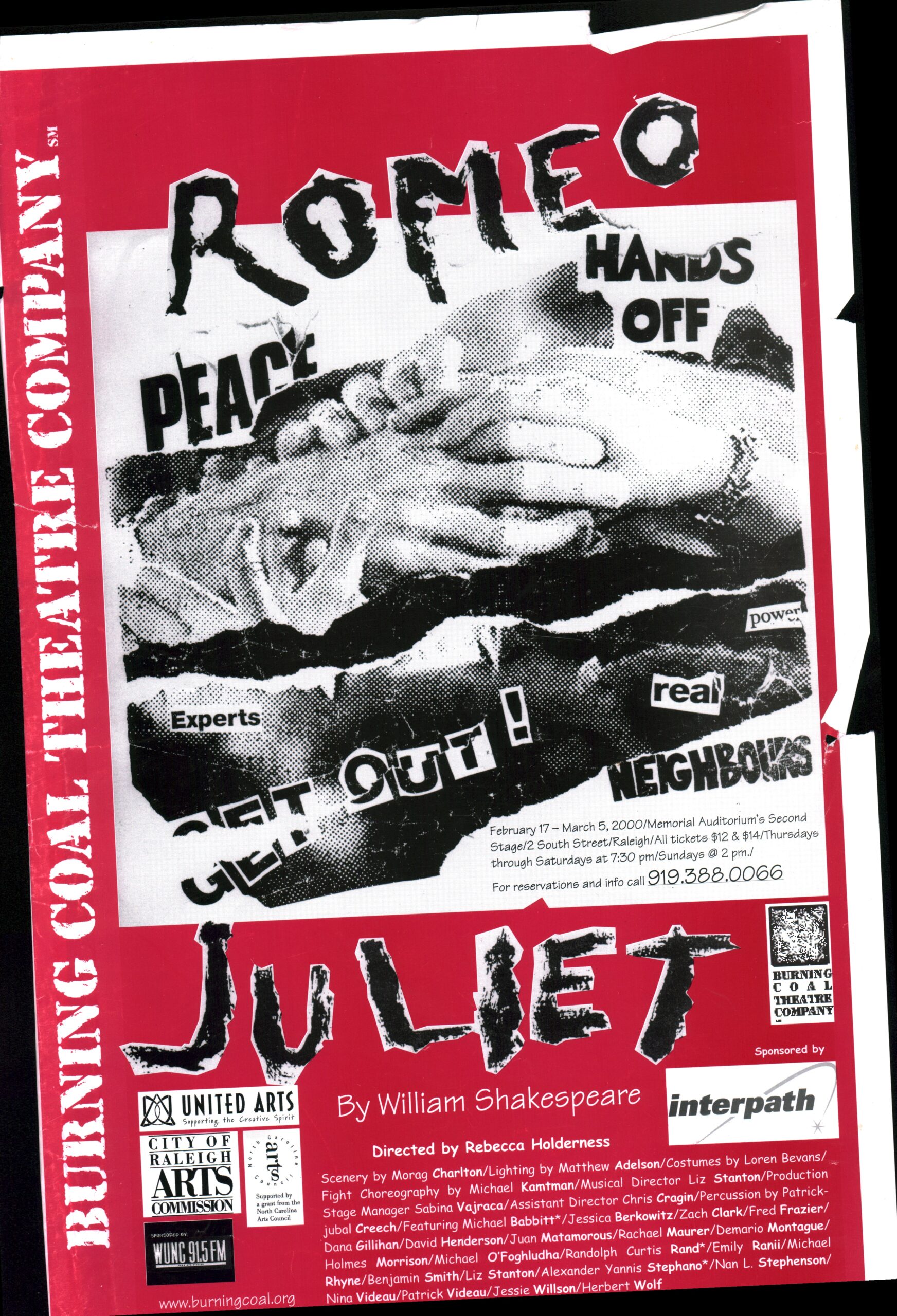
Romeo & Juliet by William Shakespeare
Dir. Rebecca Holderness
Dates: February 17-March 5 2000
Location: Raleigh Memorial Auditorium Second Stage
Night and Day
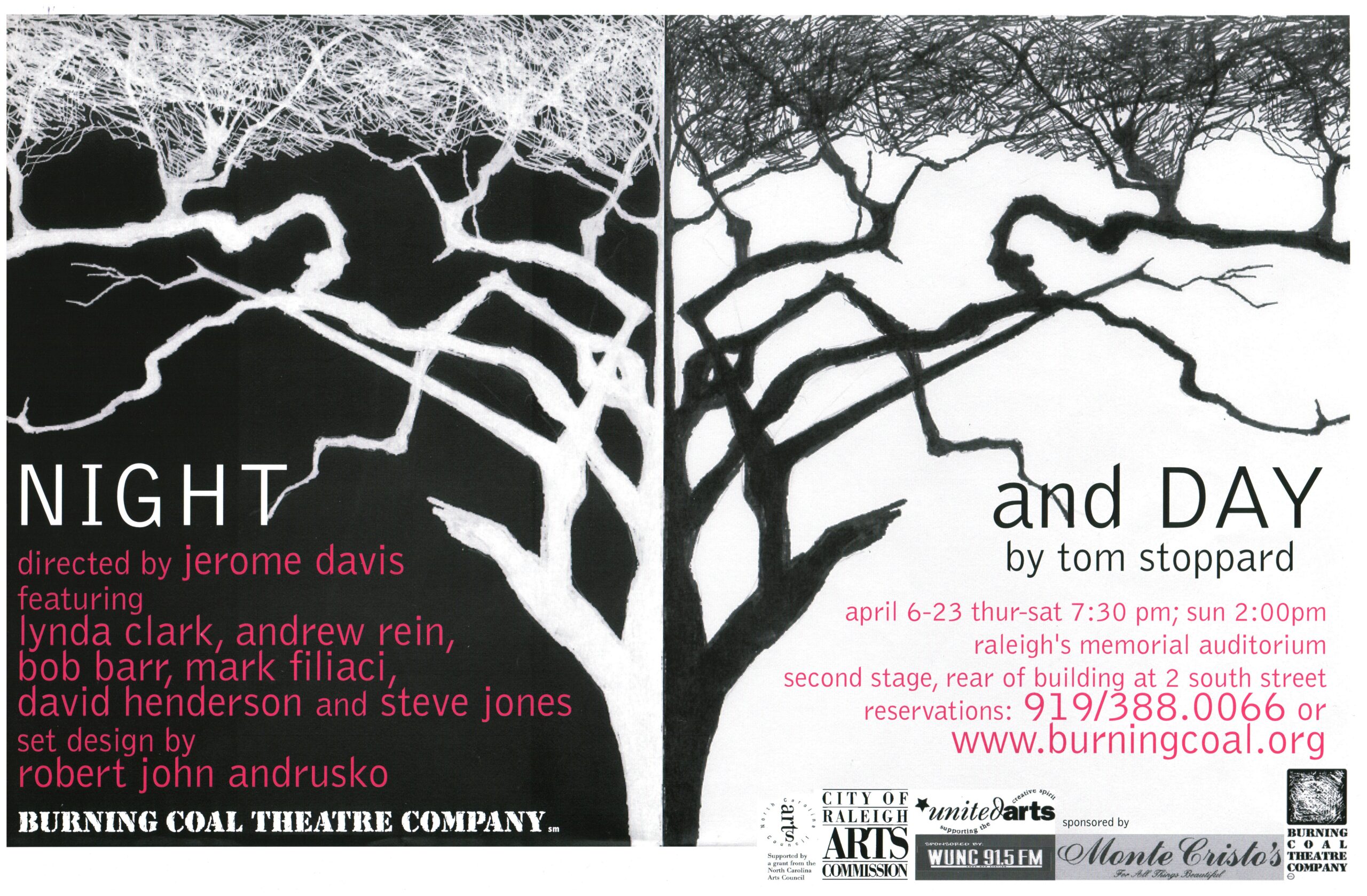
Night and Day by Top Stoppard
Dir. Jerome Davis
Dates: April 6-23 2000
Location: Raleigh Memorial Auditorium Second Stage
The Steward of Christendom
The Steward of Christendom by Sebastian Barry
Dir. Jerome Davis
Dates: September 23-26 1999
Location: Raleigh Memorial Auditorium Second Stage
Artistic Director’s Notes:
My attention was drawn to the Steward of Christendom by a review in a New Yorker found in the waiting room of my accountant’s office. A strange place for art and commerce to collide? The writer was John Lahr. His father, Bert, holds a place in our hearts, as he played in the great film The Wizard of Oz. The son is some kind of writer! His collection of criticism, Light Fantastic, is a great read. Most well known for the Orton biography Prick Up Your ears, he also wrote about his father in Confessions of a Cowardly Lion.
Lahr’s review brought the play searingly to life. I went to BAM to see its brief run in the U.S. I was struck by its simple idea: that forgiveness is an essential human characteristic. I was reminded for the first time in a long time that we are shepherds of our brief time on earth. We are stewards, and not only of the land or our accumulated wealth, not even just of our talents to which artists tend to give primacy.
We live in a country where courage is valued, but it is associated with winning. We value our heroes. Mickey Mantle was a hero because he slugged home runs. Clint Eastwood is a hero because his enemies remain unforgiven. We root for Notre Dame or Alabama or the Tar Heels not for what they are but for what they do: win. I saw the great young actor Edward Norton in a play in New York six months before his first film came out; before his first oscar nomination. There were maybe twenty people in attendance. Was he less of an actor? Of course not. He hadn’t won yet, so we weren’t interested.
So what’s this play doing suggesting another way to win? That beating someone or something means less than the ability to forgive? Barry’s hero, Thomas Dunne, is on a journey. He is searching for the courage to forgive those who have tormented his life, deserted him, used him for their own ends. Mostly, though, he must forgive himself for being used, being blind, for serving someone and something that wasn’t worthy of his gracious heart.
Someday Clint Eastwood may make a film called Forgiven, and manhood may again be associated with stewardship. Then the people of England and Ireland may come to understand that forgiveness is the only answer to their ages-long nightmare, the nightmare that Thomas Dunne had to bear. That is Barry’s dream, as it is the dream that haunts Thomas Dunne. O, if we only had the courage!
Jerome Davis August 1999
Crew:
Stage Manager: Dana Gillihan
Scenery Design: Robert John Andrusko
Costume Design: Alison Ray Foley
Production Dramaturg: Anthony Fichera
Assistant Director: Michael O’Foghludha
Lighting Design: Herrick Goldman
Properties Design: Michael Smith
Technical Director: Edward Conte
Lighting Operator: Demaria Corley
Assistant Stage Managers: Anne Cole, Martha Cole, Howa Tawey, Bobbi Vinson
Graphics Design: Simmie Kastner
Painting Assistants: Bronwyn Charleton, Morag Charleton, Melissa Cochrane, Tony “Josh” Lawrence, Mark Miller
House Managers: Willie Jordan, Martha Cole, Leesville Road Drama Students
Cast:
Stephen Sinclair – Thomas Dunne
David Henderson – Smith
Nan L. Stephenson – Mrs. O’Dwa
Micah Cover – Recruit, Matt
Leah Shankman – Willie
Chris Cragin – Annie
Serena Ebhardt – Maud
Emily Ranii – Dolly
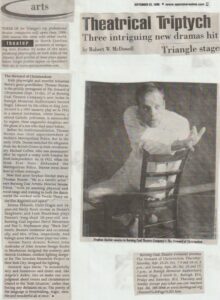
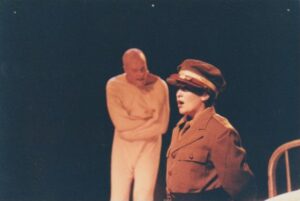
Have a fond or interesting memory of this play you’d like to share with us? We’d love to hear it!
Please Contact Us to Share!
Burning Coal Theatre
(919) 834-4001
224 Polk St., Raleigh NC 27604
Played September 23-26 1999: The Steward of Christendom
St. Nicholas
St. Nicholas by Conor McPherson
Dir. Randolph Curtis Rand
Dates: January 6-30 2000
Location: Raleigh Memorial Auditorium Second Stage
Artistic Director’s Notes:
No one knows for sure, but the first human conversations almost certainly took place around a fire. The fire is the hearth, the home, the safe haven. The stories of the day were told there. The stories of the hunt. Recollections of what came before and the hopes for tomorrow.
Only in this, the American Century, has fire ceased to be a significant part of our lives. Electricity has taken its place. But when you sit at a TV, in your air-conditioned home, eating microwaved dinners packaged at a plant somewhere in New Jersey, you are not required to tell the day’s stories, let alone participate in them. The fireside stories of the past are gone, maybe forever. That doesn’t mean there haven’t been many wonderfully positive things about the industrial and now the technological revolutions of the American Century. To be here now, to be American, is to be sitting on top of the world economically, militarily, artistically. Well at least commercially. Our industry is topnotch, our sports world, auto industry, film industry, high-tech industry, stock markets, education system (yes, even that!) are the envy of the world.
Where does that leave the theatre, an art form based in storytelling? For awhile, we were struggling to keep up with the technology using hydraulics and pyrotechnics, microphones on actors so we could hear their intimate inflections in the cavernous spaces required to pay for all that technology. Then, just as the century was drawing to a close, Conor McPherson and a new breed of playwright sprang forward with a kind of play that harkens back to the simple, direct storytelling of the past. His simplicity would fit right in around a campfire or a candlelit dinnertime chat. He is a reminder, and a hugely successful one, for such a young man (27 when the play was written), that theatre not only cannot compete with technology but, perhaps, should not be making the effort.
In St. Nicholas, you will meet a man who is sitting on top of the world. An overfed, besotted, self-absorbed man at the height of his profession, the fear and envy of all, a controller and manipulator who knows how to paly the games and wins at them regularly. That his wife has left him alone in the house, though still a tenant there, that his children never communicate with him except to scream at him or take his money, that his neighbors aren’t even mentioned, that his coworkers only connect with him through the haze of alcoholism and displays of insincere familiarity, that his body is degenerated and his mind is off wandering through a pock-marked hell of self-inflicted wounds – none of that can tear down this mountain of a man, can it? Of course not. This is his time!
But he does come down. Hard. And what is the catalyst of his decline? A young girl, an innocent, an artist? Maybe, but listen closely. In his period of debauchery so reprehensible that he hits bottom and threatens to stay there, it is the memory of purity that will save him, if anything can. For purity, honest, straight-forwardness are the ideals for tomorrow just as they were yesterday. They are the mystery, the integrity that will always inspire great men and great nations. Gather round the fire, folks. It’s time for a new story to begin!
Jerome Davis, December 1999 1999
Crew:
Stage Manager: Bobbi Vinson
Scenery/Costume/Graphics: Simmie Kastner
Lighting Design: Donna James
Production Dramaturg: Anthony Fichera
Rehearsal Stage Manager: Kate Amory
Technical Director: Edward Conte
Lighting Operator: Chris Cragin
Assistant Stage Managers: Martha Cole, Anne Cole
House Manager: Willie Jordan, Leesville Road High School Drama students
Cast:
Jerome Davis – The Critic
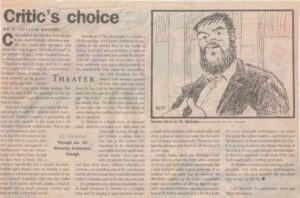
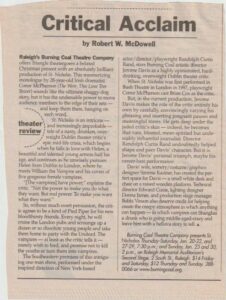
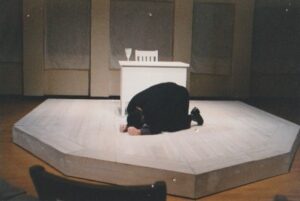
Have a fond or interesting memory of this play you’d like to share with us? We’d love to hear it!
Please Contact Us to Share!
Burning Coal Theatre
(919) 834-4001
224 Polk St., Raleigh NC 27604
Played January 6-30 2000: St. Nicholas
Romeo & Juliet
Romeo & Juliet by William Shakespeare
Dir. Rebecca Holderness
Dates: February 17-March 5 2000
Location: Raleigh Memorial Auditorium Second Stage
Director’s Notes:
It is common to ask “why produce Shakespeare?” The answer often is one that refers to his position in history, his fame as a classical writer. For the last 300 plus years, Shakespeare has been studied and examined. He is taught in schools world wide. In this great sea of intellectual and academic examination, few of his plays are scrutinized more than Romeo and Juliet. In addition to this, the play has a rich history of adaptation to opera and film. So why do it? Here and Now?
Shakespeare lived in a time of discovery, political unrest, passion and violence. His century was riddled with plague and disease. It was also a time of great thought, poetry and music. I believe that the world I live in is the same as his. Yet, I think that his writing has something we lack – faith.
In Romeo and Juliet love is forged in the crucible of violence. In the play humor and humanity are balanced against blind vengeance and bloody death. In this story love and friendship assert themselves as forces equal to hate.
Yet as a tragedy, love does not will out. Death is the marriage bed here. And it is the old that dress the young for burial. Where is the faith in this? I feel it is in the Prince’s lines: “See what a scourge is laid upon your hate, that heaven finds means to kill your joys with love.” The joy and exhilaration of hate, of brutal death and the assertion of power over another is killed with love, in a story. The faith, the hope is that we can learn from a story, well told.
About the Percussion: Much of Romeo and Juliet is written in verse. The ten beat line of stressed and unstressed beats has been related to the human heart beat and length of a breath. The pulse of poetry and song inhabit each moment of the play. The percussion here is to remind you, excite you, and encourage you to sing (or dance)!
Rebecca Holderness, January 2000
Crew:
Stage Manager: Sabina Vajraca
Technical Director: Dan Helias
Scenery Design and Graphics: Morag Charlton
Lighting Design: Matthew E. Adelson
Costumer: Loren Bevans
Sound Design – Composer: Liz Stanton
Fight Director: Michael Kamtman
Assistant to the Director: Chris Cragin
Graphics Layout: Jerome Davis
Percussion: Patrick-Jubal Creech, Blake Methena, Nathan Christy
Fight Team Captain: Michael Babbitt
Clown Director: Benjamin Smith
House Manager: Willie Jordan
Law Enforcement: Ali Hanson
Cast:
Michael Babbitt – Romeo
Zach Clark – Clown
Fred Frazier – Benvolio
Dana Gillihan – Lady Montague
Steven Jones – A Gentlemen
David Henderson – Friar Laurence
Eric Kuehnemann – Clown
Demario Montague – Tybalt
Holmes Morrison – Escalus, Prince of Verona/an apothecary
Michael O’Foghludha – Capulet
Emily Ranii – Juliet
Mike Rhyne – Paris
Todd Scofield – Mercutio
Benjamin Smith – Friar John/Peter/Clown
Liz Stanton – Lady Capulet
Nan L. Stephenson – The Nurse
James Sullivan – Montague
Patrick Videau – Clown
Jessie Wilson – The Chorus
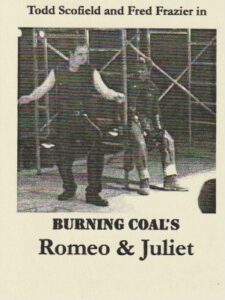
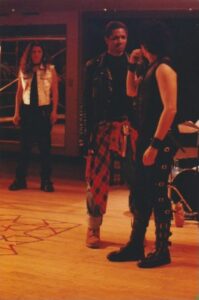
Have a fond or interesting memory of this play you’d like to share with us? We’d love to hear it!
Please Contact Us to Share!
Burning Coal Theatre
(919) 834-4001
224 Polk St., Raleigh NC 27604
Played February 17-March 5 2000: Romeo & Juliet
Night and Day
Night and Day by Top Stoppard
Dir. Jerome Davis
Dates: April 6-23 2000
Location: Raleigh Memorial Auditorium Second Stage
Artistic Director’s Notes:
Tom Stoppard wrote the first true play I ever performed (The Real Inspector Hound). I have no idea what he’s going on about in that play, and I certainly hadn’t a clue as a 16 year old. What I did and do marvel at and relish is the way he goes about saying what it is he wants to say. He is to the public at large a faceless playwright, toiling away behind the curtain of anonymity that a career in theatre most often brings.
If you’ve been watching, you will have noticed that this theatre company is interested in the literate plays of our and other times. That means we had to do Stoppard at some point, and better sooner than later. From the early Rosencrantz and Guildenstern are Dead, a modern classic, to the co-authorship of the Oscar winning and might entertaining Shakespeare in Love to the spell-binding, centuries-stradling Arcadia, to even his seemingly nonchalant radio works like Every Good Boy Deserves Favor and Albert’s Bridge, Stoppard has crafted a body of work over the last 35 years that is unrivaled for its delectable, well, craft! He is a brainy writer, which should have been the kiss of death for his career. Instead, he continues to explore the deepest, most vital questions of our age while keeping us laughing and gasping at the scope of his wit, at the very possibilities that our language, and by extension, ourselves possess.
That strikes me as a testament to the man’s intellect, yes, but also to his heart, the organ for which he is least lauded. For, with the exception of the occasional Shakespeare in Love or a personal favorite of mine, Empire of the Sun, Stoppard has stayed with his muse, the theatre long past the time when most craftsmen would have abandoned it for the more lucrative film industry. He continues to bang away, making small waves in the ever-widening pond of art and culture. He isn’t often in vogue anymore, in the way that upstarts like Patrick Marber, with his post-modern sensibilities or the late Sarah Kane, with her macabre violent streak, have been. No, Stoppard continues to remind us, play after play, that the word is, ultimately, the writer’s only gift to the world. And how those words are used – contorted, punned up, deconstructed, broken down, rebuilt-will be the lasting legacy of our very own, modern-day Mr. Shakespeare.
Jerome Davis, March 21, 2000
Crew:
Stage Manager: Mandy Christian
Technical Director: Michael Reynolds
Lighting Design: Charlie Morrison
Scenery Design: Robert John Andrusko
Costumer: Jason Fetvedt
Sound Design: Rick Labach
Fight Director: Jeff Jones
Assistant Stage Manager: Renee Rush
Graphic Design: Simmie Kastner
Production Dramaturg: Kersten Reynolds
Hair Design: Julie Ann Gill
Props: David Powell, Jr.
House Manager: Martha Cole and Joyce Copeland
Cast:
Mark Filiaci – George Guthrie
Demario Montague – Francis
Lynda Clark – Ruth Carson
Clint Lineau – Alastair Carson
David Henderson – Dick Wagner
Andrew Rein – Jacob Milne
Bob Barr – Geoffrey Carson
Steven Jones – Mageeba
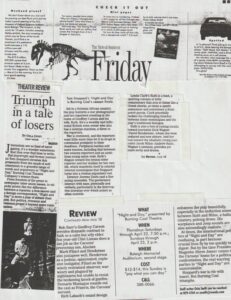
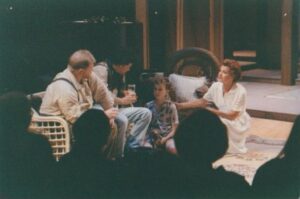
Have a fond or interesting memory of this play you’d like to share with us? We’d love to hear it!
Please Contact Us to Share!
Burning Coal Theatre
(919) 834-4001
224 Polk St., Raleigh NC 27604
Played April 6-23 2000: Night and Day
Season 4: (2000-2001)
The Weir
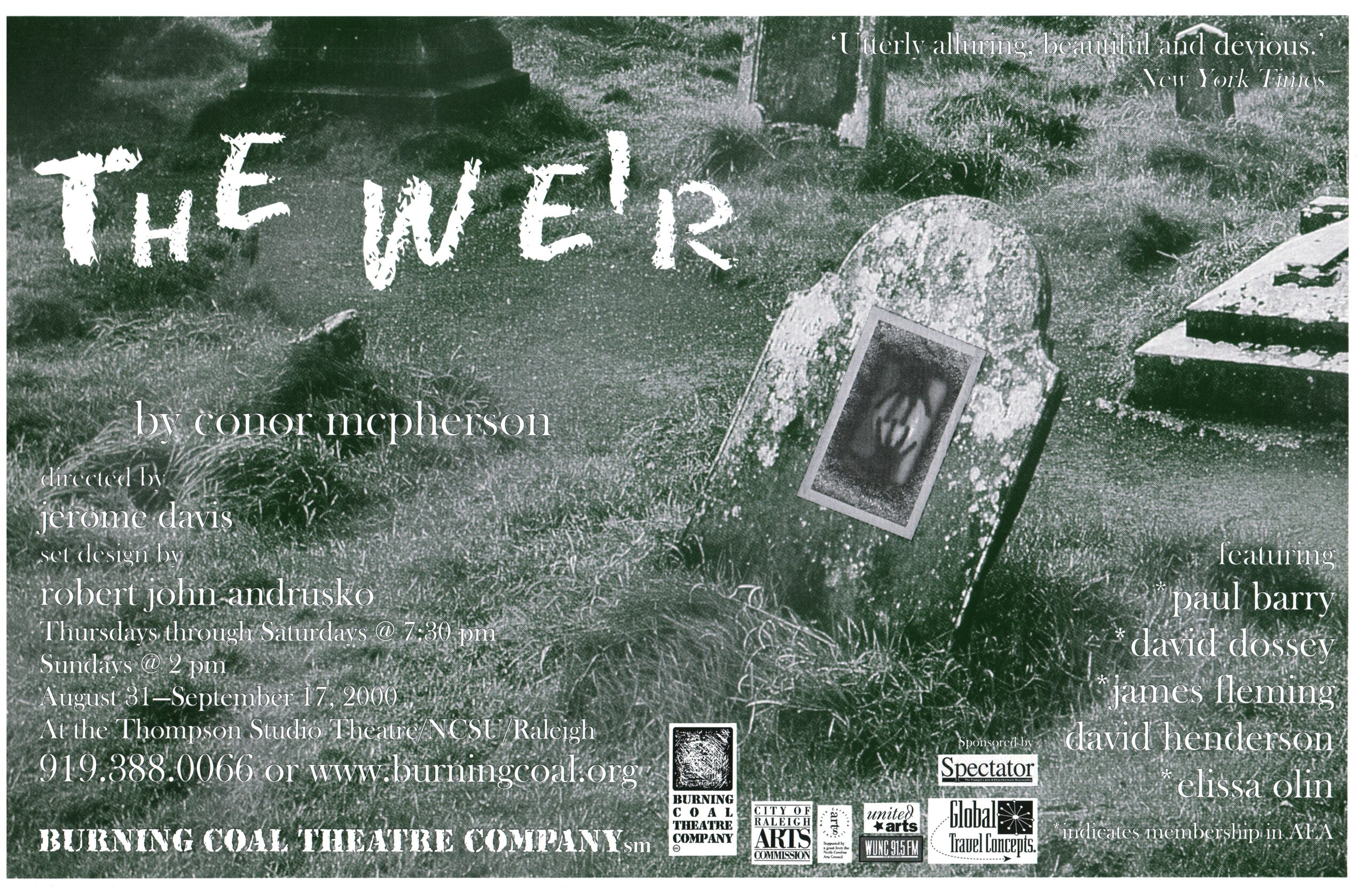
The Weir by Conor McPherson
Dir. Jerome Davis
Dates: August 31-September 17 2000
Location: NCSU Thompson Theatre
Macbeth
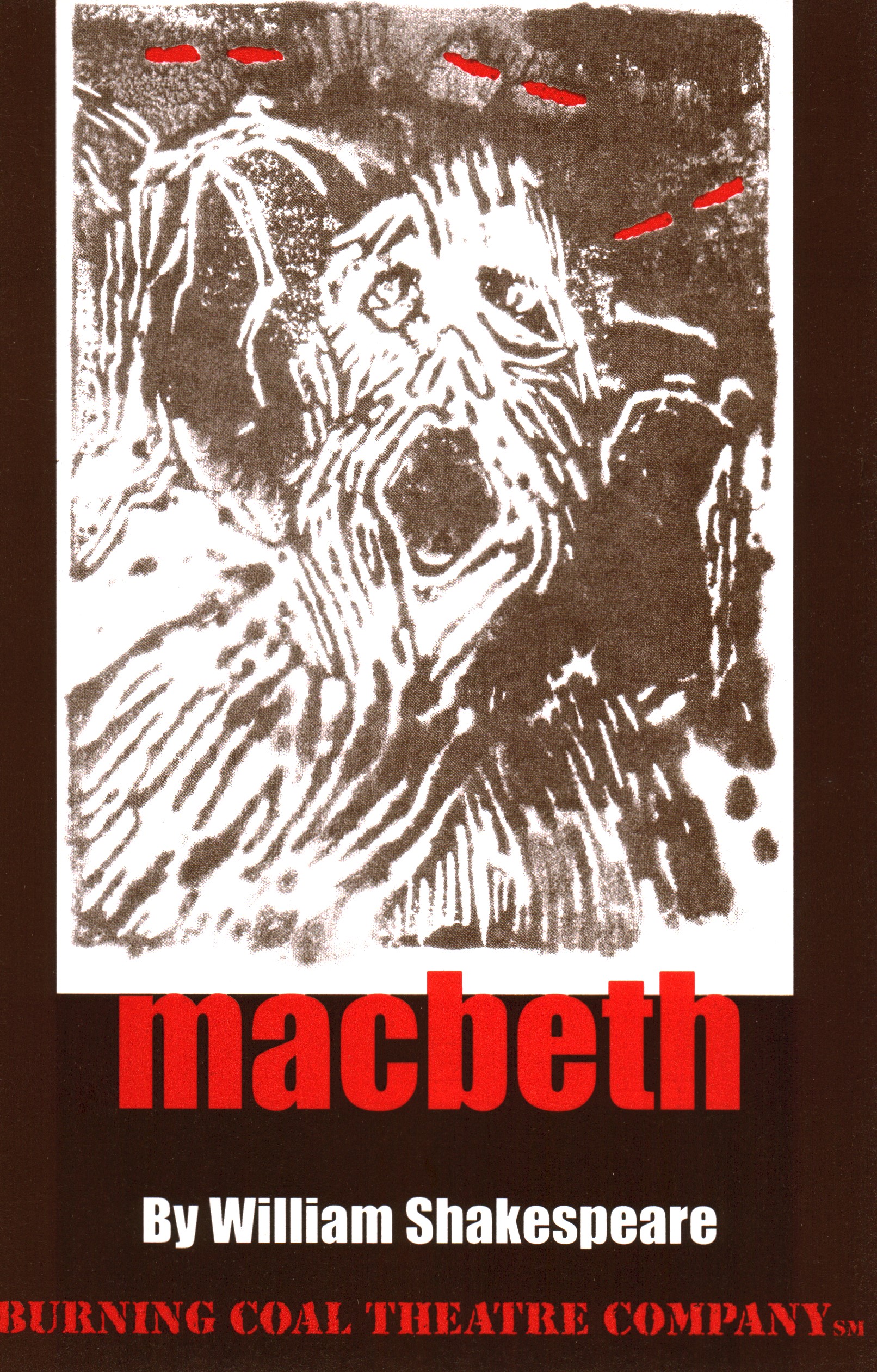
Macbeth by William Shakespeare
Dir. Alexander Stephano
Dates: November 2-19 2000
Location: Achievement School
Uncle Tom's Cabin
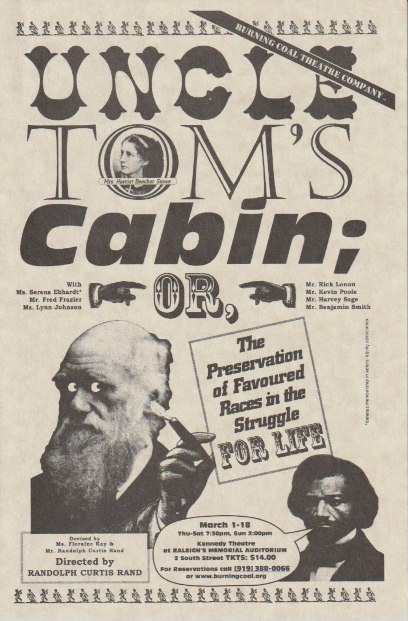
Uncle Tom's Cabin by Harriet Beecher Stowe
Dir. Randolph Curtis Rand
Dates: March 1-18 2001
Location: Kennedy Theatre
Watership Down
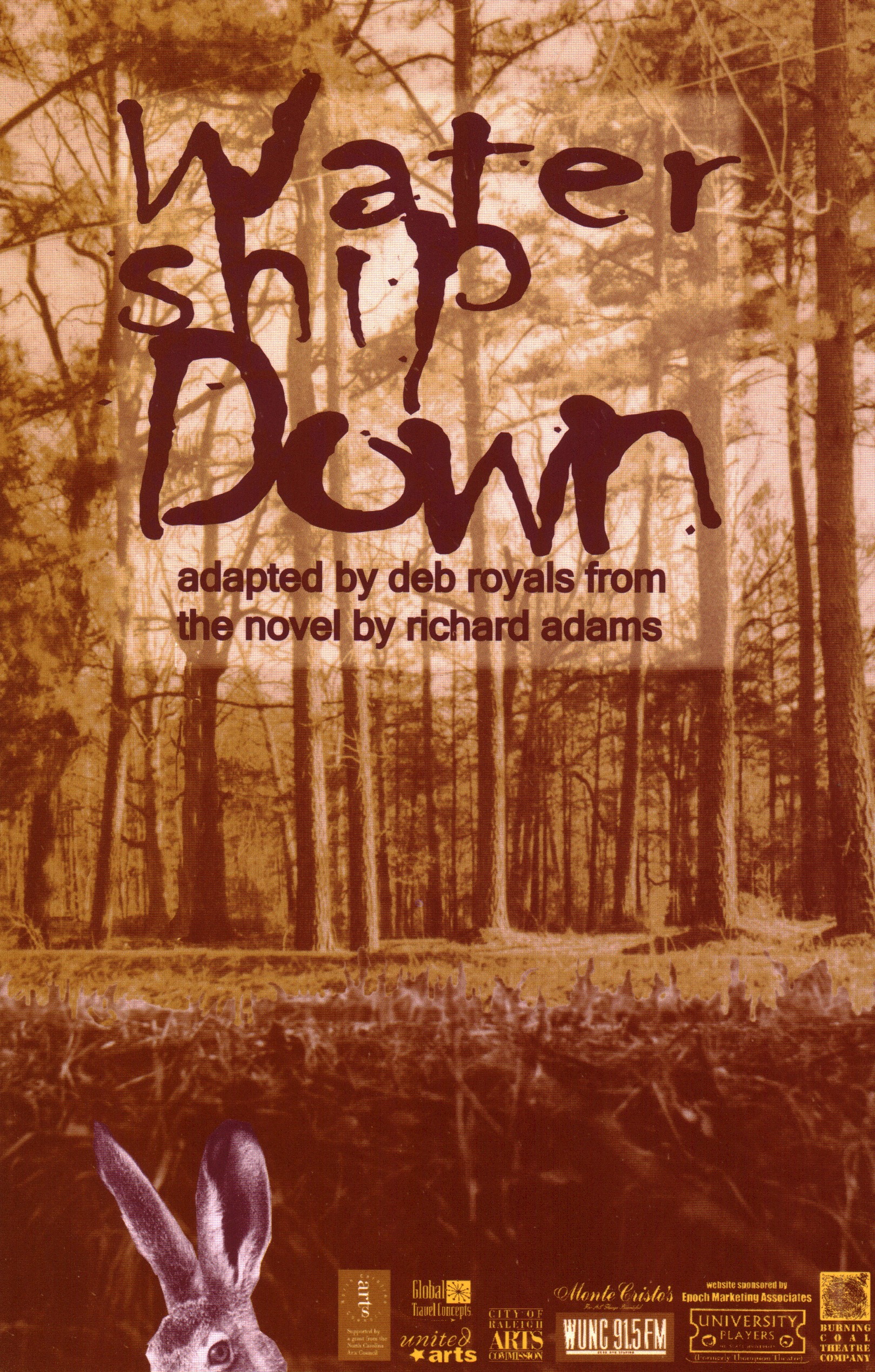
Watership Down adapted by Deb Royals from the novel by Richard Adams
Dir. Eric Tucker
Dates: May 10-27 2001
Location: Thompson Theatre
The Weir
The Weir by Conor McPherson
Dir. Jerome Davis
Dates: August 31-September 17 2000
Location: NCSU Thompson Theatre
Artistic Director’s Notes:
In life, unlike theatre, we often find it difficult to pinpoint seminal “turning points.” We glide from one part of life to another with precious few “moments” when the veil of human frailty is lifted and we see through the class, clearly Our faith in something beyond ourselves gets through the day. When faith is lost, we go bad, become unproductive, drop out, stop being useful. Chekhov knew this. So, too, does Conor McPherson. His plays tend to have a surface meandering quality that masquerade the seismic shifts beneath.
One such shift for me occurred when I was thirteen. A difficult time for anyone, this year included for me a (thankfully) temporary move out of the public schools, a rough motorcycle accident, the release of William Friedkin’s The Exorcist, puberty (Not necessarily in this order) and a ghost story that more or less scared the daylights out of me and robbed me of a good year’s worth of sleep.
A year later, someone told me the story again, with a different twist at the end and I realized with great relief that the story was not true. The story was only a story, had never happened, was fiction, did not confirm all my worst suspicions about humankind. I’m not sure if I have ever felt such relief since.
I have thought often of the story since beginning work on The Weir, a play in which men inflict a kind of pain without realizing it. It is about the devastating power of story. It is about how the listener responds. Is her story an act of retribution? Is it an effort to reach out? To correct an historical omission? How do we respond when another tries to make contact? Do we close the door, screen our calls, delete the e-message? Or do we look past the aggression, the inherent bias, the racism, the sexism, ageism that is a part of each of our viewpoints – and attempt to respond? In the 21st century, that answer often depends on how much time we have.
The nice thing about a good ole fashioned ghost story is that it stops time and focuses our attention on the person before us. We gain perspective by the simple act of sitting still and listening to a story about a life not our own. This is good stuff! I don’t know where I’d be today were it not for the ghost story I was so frightened by as a child. I would not be where I am now. That may make the listening to a ghost story, and more importantly the belief in that story, the most important choice I ever made. Although it tore me apart then, I have since come to understand that the ability, the willingness to believe in something outside our own existence is what separates us from the animals. Listen up, because Mr. McPherson is about to level the room.
Jerome Davis, July 31, 2000
Crew:
Production Manager: Melissa Ricketts
Stage Manager: Adam Budlong
Technical Supervisor: Jim Maney
Scenery Design: Robert John Andrusko
Lighting Design: Derek Butler
Costumer: Brandi Ratliff
Props: Shambavi Kaul
Sound Design: Rick Labach
Assistant DIrector: Mary Floyd
Assistant Stage Managers: Ann Cole and Renee Rush
Production Dramaturg: Jennifer Marlowe
Marketing Director: Sserena Ebhardt
Dialects Coach: Michael O’Foghludha
Graphics Design: Simmie Kastner and J.R. Evans
House Manager: Martha Cole
Light Board Operator: Marjorie S. White
Cast:
Paul Barry – Jack
David Henderson – Brendan
James Fleming – Jim
David Dossey – Finbar
Elissa Olin – Valerie
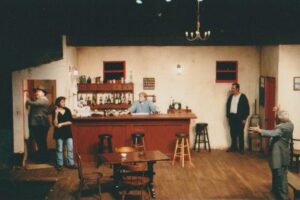
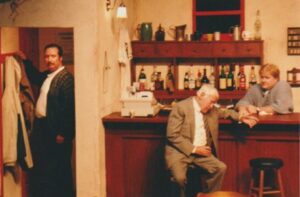
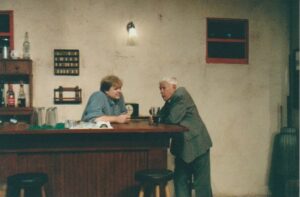
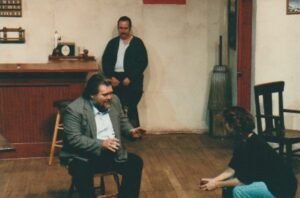

Have a fond or interesting memory of this play you’d like to share with us? We’d love to hear it!
Please Contact Us to Share!
Burning Coal Theatre
(919) 834-4001
224 Polk St., Raleigh NC 27604
Played August 31-September 17 2000: The Weir
Macbeth
Macbeth by William Shakespeare
Dir. Alexander Stephano
Dates: November 2-19 2000
Location: Achievement School
Dramaturg’s Notes:
Since its premiere in 1606, “The Scottish Play” has been plagued with what many believe to be a “curse.” The word Macbeth (I can write that and say it because I am not in the theatre) is forbidden to be spoken within the walls of a theatre or any theatre space. It is believed that to do so will bring harm or disaster to any production and all of those involved.
How did this begin you might ask? In 1606 William Shakespeare prepared to open his first production of The Tragedy of Macbeth for the arrival of King James I, who was an expert on demonology and actually wrote a book on it titled Demonologies. To impress the King, Shakespeare wrote this tragedy, which is said to be based on Raphael Holinshed’s Chronicles. Chronicles contains a historical depiction of the actual Mac Beth, the events and people surrounding his life and death. But nonetheless, Wills wrote the thriller, no holds barred, right down to the very real incantations chanted by the three weird sisters. In Act IV he is said to have replicated an actual 17th century black magic ritual, which angered those it belonged to and thus the punishment is said to be an everlasting spell they cast, that will forever surround the play. And it would seem by the ill-fated history of most productions of this work, that indeed, the “curse” truly does exist.
The legends go as follows:
1606– On opening night, the boy playing Lady Macbeth, died back stage.
1672– The actor playing Macbeth in the Amsterdam production substituted a real dagger for the blunted one on stage and with it killed the actor playing Duncan in full view of the audience.
1775– Sarah siddons, playing Lady Macbeth, was nearly ravaged by a disapproving audience.
1849– The performance at New York’s Astor Place, resulted in a riot in which 31 people were trampled to death.
1926– Sibyl Thorndike was almost strangled by a burly actor.
1934– British actor Malcolm Keen turned mute onstage.
1937– Laurence Olivier took on the role of Macbeth and a 25-pound weight came crashing down within inches of him.
And the weirdest of them all…this was said to be Abraham Lincoln’s favorite play and he was reading it the night before he was shot and killed by John Wilkes Booth in Ford’s Theatre. (Perhaps he spoke in general conversation about the play he was reading and mentioned the name…in the theatre?)
The list goes on and on.
Are any of these true? Only those who were there could be for certain. We could speculate forever but it all comes down to what you think. It is up to you, the audience to decide. Is it all urban legend or is Shakespeare’s shortest tragedy and all involved with it, doomed for eternity to be forever afflicted by a spell the charmed ones played upon it many centuries ago. Do you walk into our theatre space on opening night and run around yelling the name or do you even whisper it by accident to your date? It is said that if you do speak the name with in the walls of the theatre, the remedy is you must step outside, turn around three times, spit, and say the foulest word you know and wait for permission to reenter the theatre. And yet another says to turn around three times where you stand, spit and quote The Merchant of Venice, “Fair thoughts and happy hours attend you.” Just in case you should mention “the unmentionable play” where you shouldn’t. Have your remedy in hand.
So come and join us on this most enchanted reign of dreaded dark and madness but beware, for something wicked this way comes
Jennifer Marlowe
Crew:
Scenery and Costumes – Jason Fetvedt
Lighting – Scott McElheney
Props – Robert Uzabel
Sound – Rick Laback
Stage Manager – Renee RUsh
Movement Director – Mark Eis
Dramaturg – Jennifer Marlowe
Assistant Stage Managers – Meredith Sause, Sandra Shelton
Stage Hand -Zach Zientak
Cast:
Scott Eberlein – Macbeth
Lynda Clark – Lady Macbeth
LeAnn Crainshaw – Witch
Rebecca Daw – Witch
Benjamin Smith – Witch
Nicholas Karner – Malcolm
Steven Moore – Ross
Rick Lonon – Lenox
William Bolz – Macduff
Nan Stephenson – Lady Macduff
Brian Sulentic – Murderer 2
Fred Frazier – Murderer 1/2nd Doctor/Lord
Kevin Poole – Bloody Captain/1st Doctor/Mssenger
Caroll Credle – Seyton/Old Man/Murderer 3
David Henderson – Banquo/Porter
Russell Gentry – Fleance
William Nunnery – Donalbain
Matt Llewellyn – Young Macduff
Patrick Whalen – Cream-faced Loon
Vanessa Maiore – Gentlewoman 1
Sara Kay – Gentlewoman 2
Phil Crone – Duncan
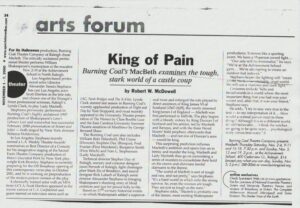
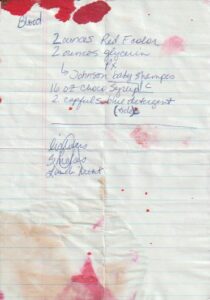
Have a fond or interesting memory of this play you’d like to share with us? We’d love to hear it!
Please Contact Us to Share!
Burning Coal Theatre
(919) 834-4001
224 Polk St., Raleigh NC 27604
Played November 2-19 2000: Macbeth
Uncle Tom's Cabin
Uncle Tom’s Cabin by Harriet Beecher Stowe
Dir. Randolph Curtis Rand
Dates: March 1-18 2001
Location: Kennedy Theatre
Artistic Director’s Notes:
I’m so happy that it worked out for Uncle Tom’s Cabin to open on March 1st – the day after Black History Month ends. I have often felt that such a designation marginalizes the history and culture of a quarter of our population. The fact is, the history of America is the history of all peoples and that very fact is emblematic of our country’s greatness, its inclusiveness.
We in Raleigh are fortunate to have the BTI Center, this sparkling new facility, to celebrate. The past several years have seen a lot of doubt and second-guessing about the space, but the building now standing on the south end of the Fayetteville Street Mall is reality. It is not a dream, it is not a fantasy, it is not politics. It has been all of those things, but now it is brick and mortar, iron and woodwork, sweat and blood and caring. What the building’s legacy will be is passed into the hands of the artists and audiences of this community. It is now our building.
The fact is that the BTI Center is situated in the heart of all Raleighs, black and white, rich and poor, north and south, east and west, new and old. It is within walking distance of the great state college, the private Peace, Saint Mary’s and Meredith, and the historically black St. Augustine’s and Shaw. And, as if that wasn’t enough in the way of omens for us, it is opening in the springtime of the first year of the new millennium, the year 2001. Is this not a time to celebrate? Is this not a time for the different cultures to come together in a new home for art and artists to shake off the chains and ways of previous centuries, and declare a new start?
Uncle Tom’s Cabin looks back to a time when different people held the reins. Those people are gone now. Good riddance. It’s a beautiful day.
Crew:
Production Stage Manager: Adam Budlong
Technical Director: Stephen Day
Scenery Design: Randolph Curtis Rand
Lighting Design: Renee Molina
Based on original design by: Jim Vermuelen
Costumes: Jonathan C. Bixby and Gregor A. Gale
Props: Robert Uzabel
Sound Designer: Al Singer
Movement Director: Eric JOhnson
Music Director: Julie Florin
Assistant Director: Leonardo Delaine
Production Dramaturg: Floraine Kay
Marketing Director: Serena Ebhardt
Graphics: Yuko Uchikawa and Randolph Curtis Rand
House Manager: Willie O. Jordan
Light Board Operator: Sean Girthan
Assistant to Technical Director: Zack Zientek
Cast:
Fred Frazier – A
Lynn Johnson – B
Serena Ebhardt – C
Kevin Poole – D
Rick Lonon – E
Harvey Sage – Italian Scientist
Benjamin Smith – Italian Scientist
Cornelius Bethea – Stagehand
Mary Floyd – Stagehand
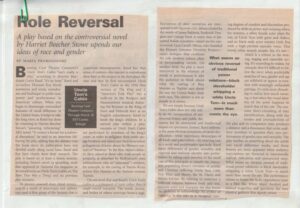
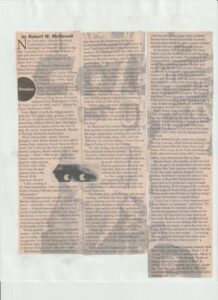
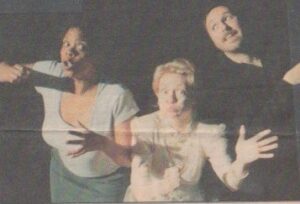
Have a fond or interesting memory of this play you’d like to share with us? We’d love to hear it!
Please Contact Us to Share!
Burning Coal Theatre
(919) 834-4001
224 Polk St., Raleigh NC 27604
Played March 1-18 2001: Uncle Tom's Cabin
Watership Down
Watership Down adapted by Deb Royals from the novel by Richard Adams
Dir. Eric Tucker
Dates: May 10-27 2001
Location: Thompson Theatre
Crew:
Stage Manager – Barbette Hunter
Technical Director – Stephen Day
Technical Director – Shawn Girdham
Scenery Design – Charles Kirby
Lighting Design – Bobby Harrell
Costume Design – Shambhavi Kaul
Props – Shawn Girdham
Original Music – Thom Limbert
Asst. Technical Director – Zack Zientek
Marketing DIrector – Serena Ebhardt
Graphics Design -Simmie Kastner
House Manager -Joyce Copeland
Light Board OPerator – Carrie Messenheimer
Marimba – Phillip Long
Asst. to Scene Designer – Maruti Evans
Cast:
Bob Barr – Threarah, Lucy’s father, Blackavar
Anne Cole – Hawkbit, Lucy
Lennardo Delaine – Keehar, Doctor
David Dossey – Bigwig
Mary Floyd – Pipkin
Fred Frazzier – Fiver
Hope Hynes – Blueball, Haystack
Lynn Johnson – Narrator, Black Rabbit
Eric Kuehnemann – Buckthorn, El-Ahrairah
Carmen-Maria Mandley – Rabscuttle, Campion
Loretto McNally – Holly
Terry Milner – Silver
Emily Ranii – Blackberry
Raphael Siary – Toadflax, Strawberry
Stephen Sinclair – Hazel
Benjamin Smith – Dandelion, Mouse
Bobbi Vinson – Hyzenthlay, Frith
David Zum Brunnen – Cowslip, Woundwort
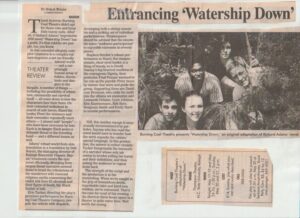
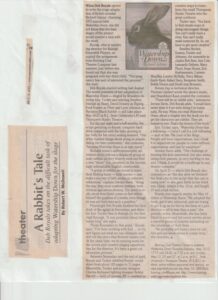
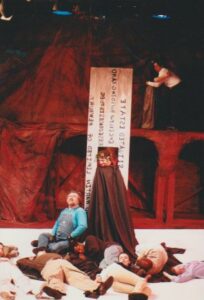
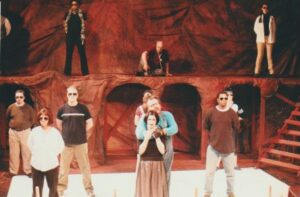
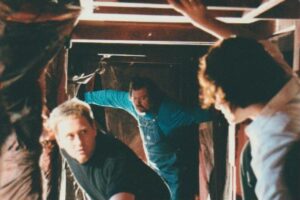
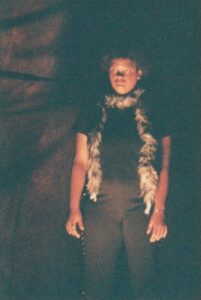
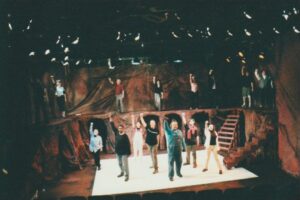
Have a fond or interesting memory of this play you’d like to share with us? We’d love to hear it!
Please Contact Us to Share!
Burning Coal Theatre
(919) 834-4001
224 Polk St., Raleigh NC 27604
Played May 10-27 2001: Watership Down
Season 5: (2001-2002)
A Doll's House
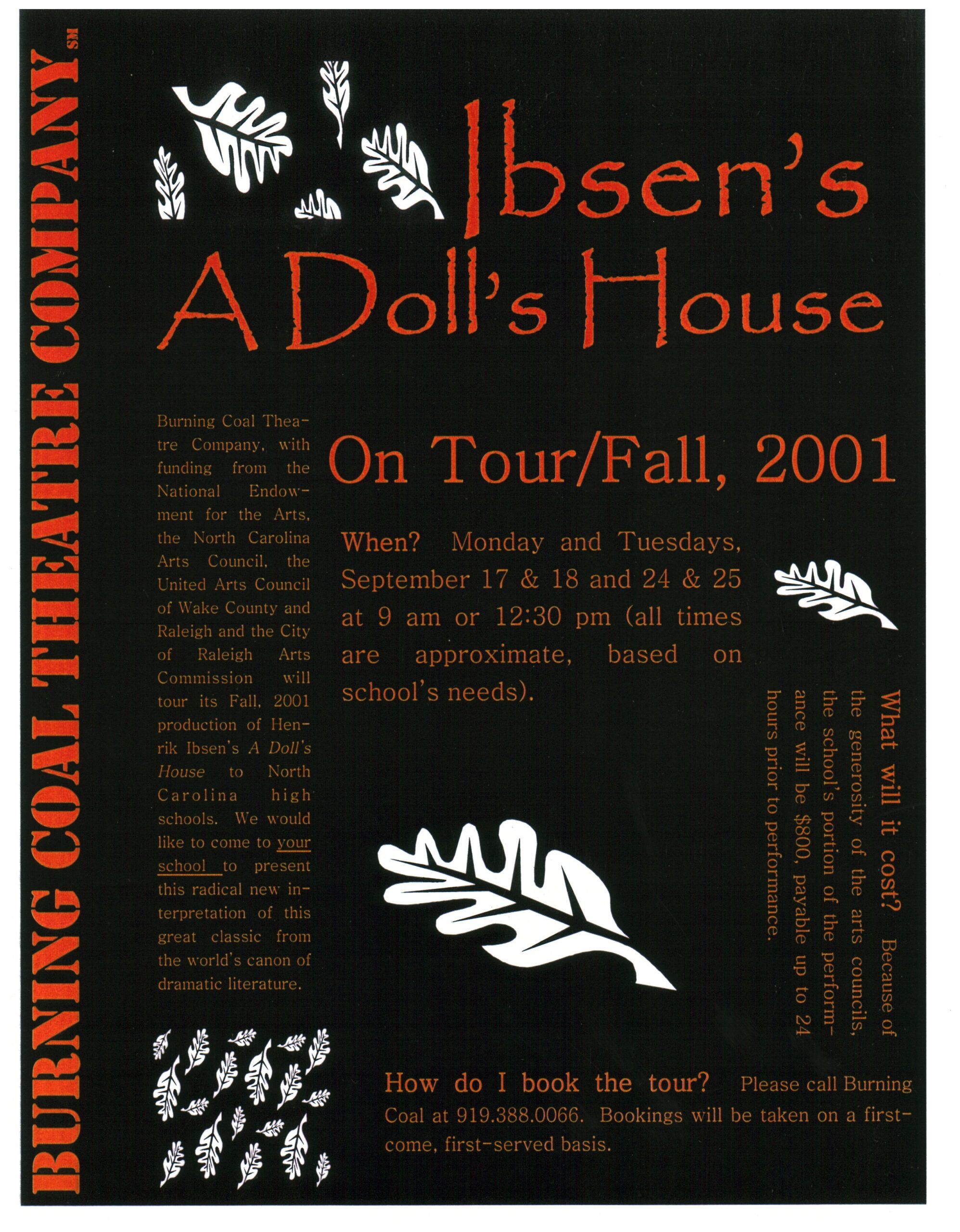
A Doll's House by Henrik Ibsen adapted by Randolph Curtis Rand
Dir. Rebecca Holderness
Dates: August 30-September 15 2001
Location: Thompson Theatre
The Mound Builders
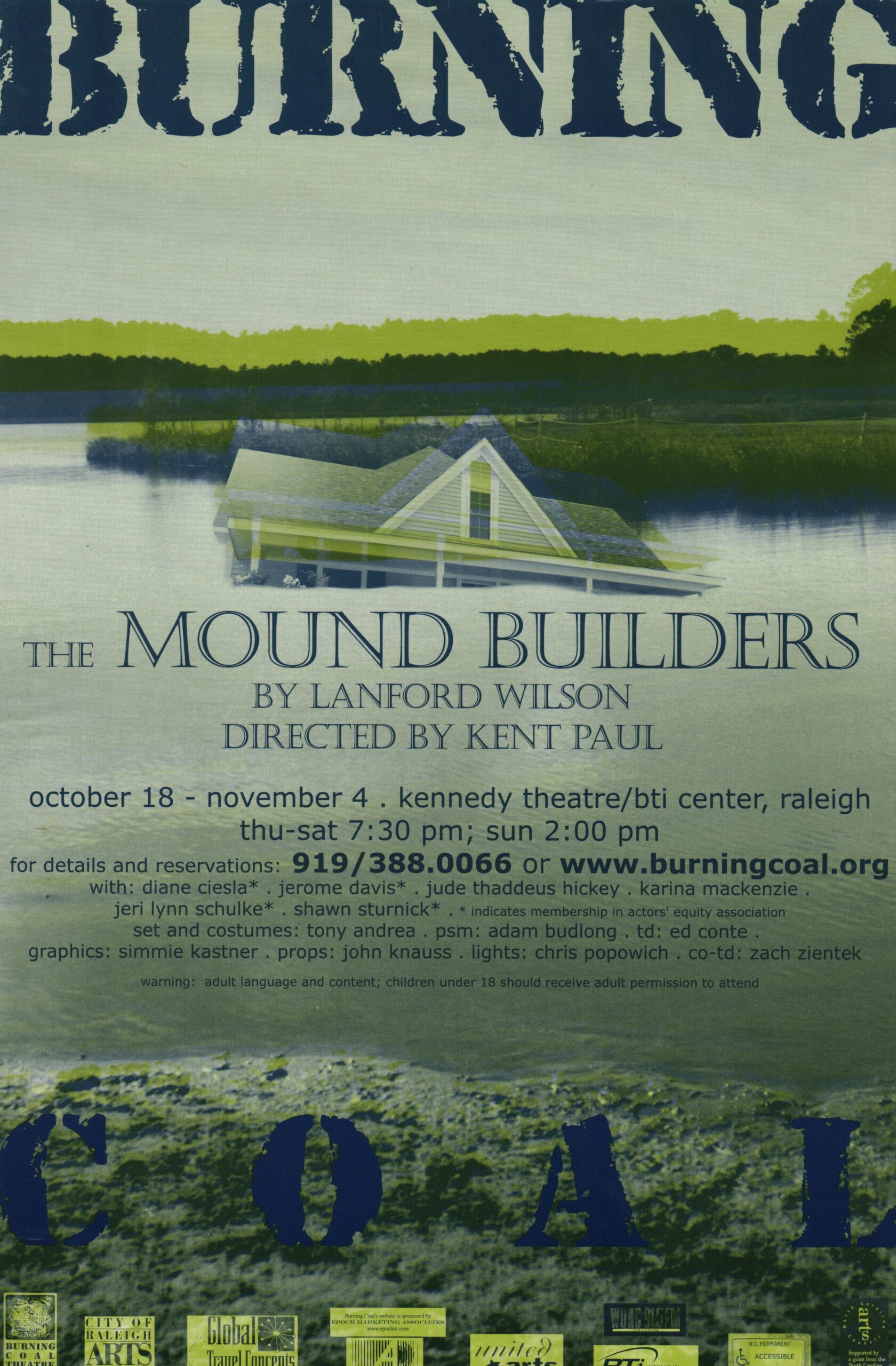
The Mound Builders by Lanford Wilson
Dir. Kent Paul
Dates: October 18-November 4 2001
Location: Kennedy Theatre
Company
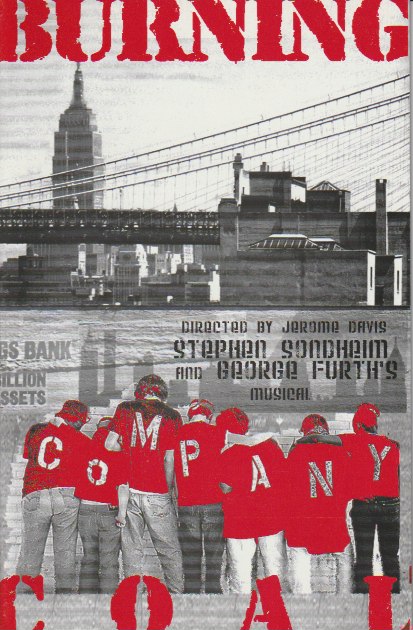
Company by Stephen Sondheim & George Furth
Dir. Jerome Davis
Dates: February 14-March 3 2002
Location: Kennedy Theatre
The Road to Mecca
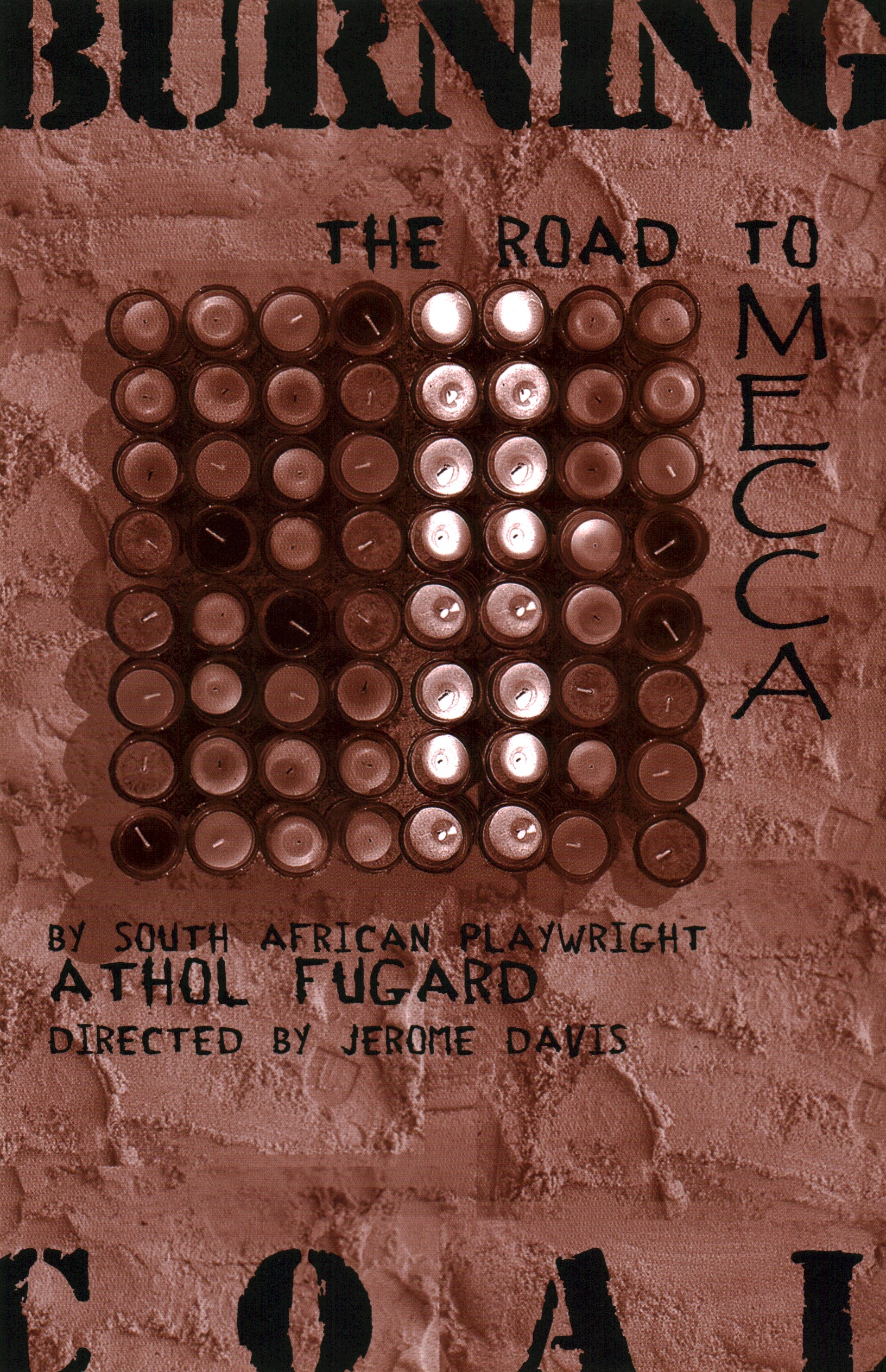
The Road to Mecca by Athol Fugard
Dir. Jerome Davis
Dates: April 4-21 2002
Location: Kennedy Theatre
A Doll's House
A Doll’s House by Henrik Ibsen adapted by Randolph Curtis Rand
Dir. Rebecca Holderness
Dates: August 30-September 15 2001
Location: Thompson Theatre
Artistic Director’s Notes:
With the exception of Shakespare, I can think of no playwright whose work has been as influential as necessary to the modern world. Among my favorites are John Gabriel Borkman, Lady from the Sea, Enemy of the People, Peer Gynt. We will get to them all in time. In the meantime, Burning Coal is most excited to be presenting one of Ibsen’s most profoundly influential plays, A Doll’s House, in a new adaptation by long-time Burning Coal collaborators Randolph Curtis Rand, directed by Rebecca Holderness. Randy and Rebecca have gone back to the original source and trimmed. Their version is as compact and effective as a bullet. I believe it will shake the cobwebs out of the old man!
I have to admit some misgivings about the play, or at least its history. In every production I have ever seen, including the recent award-winning version adapted by Frank McGuiness and starring Janet McTeer as a whirling dervish of a Nora, Torvald (Thor Helmut) in our version has always been presented as an arrogantly self-possessed jerk. That, to me, seems to lessen the play’s impact to send the play careening into melodrama. If Nora has nothing to lose through her final decision, then the decision is obvious, her loss is negligible and the play’s ideas become ossified. I don’t think Ibsen would have wanted his ideas to become monuments around which societies solemnly march. I think he wanted us to think about Nora’s decision, to debate, in the true sense of that word. I recently read the phrase, “If everyone agrees, what more is there to say?” I think Ibsen would agree. We have run out of things to say in the century since A Doll’s House first stunned audiences.
Today, removed from Ibsen’s time by a few generations, we need consensus at all costs. Newspapers hawk melodrama that is easy to digest because of its black and white nature and consign the difficult stories, the ones that need debate, to a paragraph near the back. TV news anchors refuse to cover stories that might run the risk of jarring loose their clearly defined position. Radio stations book loudmouths who spout one side of simplistic-to-begin-with issues to similarly minded zealots and the rest of us turn them off or laugh them off.
The issues discussed in A Doll’s House are not simplistic. The decisions reached by play’s end have had a profound impact on many. In Ibsen’s day, Nora’s options were so limited that it scarcely mattered who her husband was. Today , the issues remain, but to keep them hot, we have elected a Torvald/Helmut for this time. He is not a monster or a jerk. He is not arrogant or self-centered. He is trying his best. Today the world is full of such people – in war – torn Chechnya or Macedonia, in a sense Taiwan or Pakistan, in a bullet-ridden vestibule in the Bronx. People are not usually monsters. That would be easy. Pick out the ones with scales on their backs and shoot to kill! But Ibsen knew that ‘monstrous’ comes in less spectacular packages. Those who make wrong choices, as Torvald/Helmut does, are people like you and me – and yet their actions must be questioned. We are fortunate that the question was asked so clearly more than 100 years ago. The answer may be blowing in the wind, but that doesn’t mean the question shouldn’t continue to be asked for each new generation.
Jerome Davis
Crew:
Stage Manager: Rachel S. Sielinski
Technical Director: Steven Day
Scenery and Properties Design: Morag Charlton
Lighting Design: Matthew E. Adelson
Sound Design: Kit Wienert
Costumes: Vicki Davis
Properties: Shawn Girdham
Music Director: Julie Florin
Assistant Technical DIrector: Zachary Zientek
Marketing Director: Serena Ebhardt
Graphics Design: Simmie Kastner
Assistant Stage Manager: Niki Nassef and Jennifer Neale
Light Board Operator: marjorie White
House Manager: Wille Jourdan and Bonnie Tilson
Cast:
Marguerite Hannah – Mrs. Linde
David Henderson – Lawyer Helmut
Lynn Johnson – Ann-Marie, a nurse at the Helmuts’
Torrey B. Lawrence – Lawyer Krooged
Sherida McMullan – Helen, a maid at the Helmuts’
Michael O’Foghludha – Dr. Streit
Mark Pfeffer – a porter at the Helmuts’
Meredith Sause – Nora
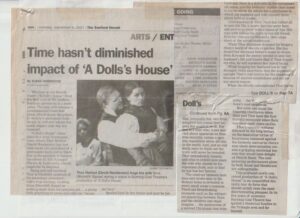
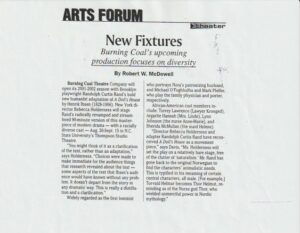
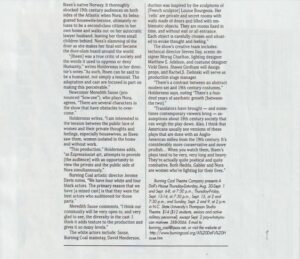
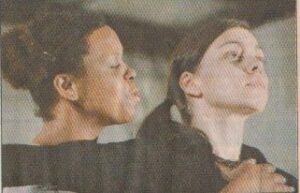
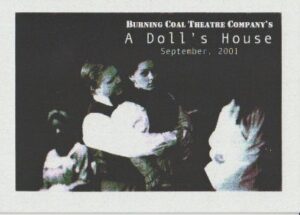
Have a fond or interesting memory of this play you’d like to share with us? We’d love to hear it!
Please Contact Us to Share!
Burning Coal Theatre
(919) 834-4001
224 Polk St., Raleigh NC 27604
Played August 30-September 15 2001: A Doll's House
The Mound Builders
The Mound Builders by Lanford Wilson
Dir. Kent Paul
Dates: October 18-November 4 2001
Location: Kennedy Theatre
Artistic Director’s Notes:
Many words and images come to mind when I think of Lanford Wilson: “Ensemble,” “Seventies,” “Radical,” “Sex,” “Drugs,” “Lyric Realism.” Mostly, though, when I think of WIlson, I think of the word “family.” Wilson’s plays are always about two or more people struggling to become a family. He is, as you will see, less interested in the traditional, nuclear family, and more interested in those struggling souls at the edge of our culture who must, out of need, create for themselves a kind of family. America has, at least since the 1950s, defined “family” in a fairly narrow way. For the outcasts of society, that is particularly troubling. Everyone needs a familiar of some sort. If one won’t work, you instinctively go looking for another, like a family pet that wanders off because its owner neglected it. Wilson himself came from a small midwestern community in Missouri. He never felt a part of that community and, as so many before and after him have done, made his way quickly to New York City and began to fashion a kind of family in which he could thrive. The family was called the Circle Repertory Company. Wilson. Along with the director Marshall Mason and two actors, Tanya berezin and her husband, Rob Thirkhield created matic in the cramped little off-Broadway space in Sheridan Square in the West Village. That family had a profound impact on the American theatre scene from its inception in the late 1960s to its demise in the mid-90s. As well as producing all of Lanford Wilson’s great works (Hot L Baltimore, Rimers of Eldritch, Fifth of July, Talley’s Folley), it regularly transferred works to the commercial (Broadway) theatres uptown, becoming a model for many of its successors. I don’t think there would be a Steppenwolf Theatre today were it not for the trail blazed by the small band of brothers and sisters at Circle Rep, and there certainly would be no Burning Coal. Wilson and company also presented many quality works by unknown or severely unappreciated writers like Mark Medoff, Jules Feiffer and Julie Bovasso.
In Wilson’s Pulitzer Prize winning Talley’s Folley, a Jewish businessman from St. Louis woos and wins the heart of an ugly duckling (she thinks) midwestern girl with a dark secret. His insistent courtship goes from pleasantries to the verbal equivalent of the pricking of a scab. He is relentless in the pursuit, not just of her self, her body and mind, but of her history, her past. He, being the survivor of a terrible childhood in war torn Europe knows that to “get the girl” he will have to know the girl, first, and perhaps more importantly, reveal himself to her. This is more or less how Wilson structures all of his plays. He puts a group of people, a “family,” in a room together and creates an inciting event that allows those people to discover who the stranger next to them really is. In some cases, the results are pleasant, as in Talley’s Folley or Burn This. In other plays, like The Mound Builders or his new Book of Days, the close-knit group comes unraveled as prejudices, cowardice and preoccupations are revealed.
I think to Wilson, not having a family isn’t the worst thing. For him the worst thing is to not know your family. In America over the last month, a Wilson play of epic proportions has been played out. We have all been placed in a room with an inciting event. What will happen? What will be revealed? Will we step up, or wither under the pressure? I am pleased to say that the American public has more or less stripped away our tough, ugly outer shell and revealed the hearts and souls of a very brave people, indeed. Of course, any family will have its foibles, but the shock of our collective inciting incident has forged, I believe, a new kind of family spirit in America. It isn’t one based on looks or money or status or “aesthetics,” but on the rather simple nothin that the world is a finite place and that we have to share it with strangers and that to make that scenario work for the best, we amend well better get to know who those strangers are and, while we are at it, who we are, as well. It turns out that we are capable, as Americans, of much goodness toward one another. Wilson would be proud of how his family turned out. I sure am.
Crew:
Stage Manager: Adam Budlong
Technical Director: Christopher “Seajay” Johnson
Scenery & Costume Design: Tony Andrea
Lighting Design: Christopher Popowich
Sound Design: Rick Labach
Properties Design: John Knauss
Asst. Technical Director: Zachary Zientek
Marketing Director: Serena Ebhardt
Graphics Design: Simmie Kastner
Asst. Stage Manager: Andy Hayworth
Light Board Operator: Christian Etheridge
Sound Operator: Barbara Corbin
Production Photographer: Chris McMullan
House Manager: Emilie Edwards
Cast:
Diane Ciesla – Delia Eriksen
Jerome Davis – August Howe
Jude Thaddeus Hickey – Chad Jasker
Karina Mackenzie – Jean Loggins
Jeri Lynn Schulke – Cynthia Howe
Shawn Sturnick – Dan Loggins
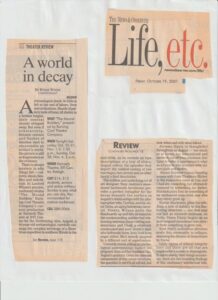
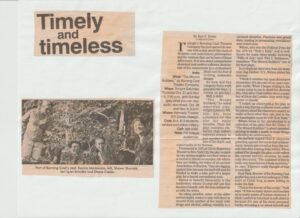
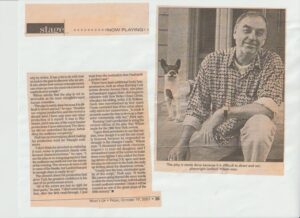
Have a fond or interesting memory of this play you’d like to share with us? We’d love to hear it!
Please Contact Us to Share!
Burning Coal Theatre
(919) 834-4001
224 Polk St., Raleigh NC 27604
Played October 18-November 4 2001 : The Mound Builders
Company
Company by Stephen Sondheim & George Furth
Dir. Jerome Davis
Dates: February 14-March 3 2002
Location: Kennedy Theatre
Artistic Director’s Notes:
My wife and I met on New Year’s Day, 1992 in a blizzard on East 25th Street. Well, the story isn’t quite that dramatic, but like most New York tales, it is pretty tall.
I had been out of town for some time for the Christmas holidays. I got back on New Year’s Eve. I lived on the Upper West Side at the time. An actor friend of mine, Anne Schulman (who is now developing quite a successful career for herself as a playwright in Minneapolis), invited me over for her annual New Year’s Day Brunch. I staggered out of bed that morning at the ungodly hour of 9 am and walked outside. There was a lot of snow on the sidewalk, and flurries were still blowing around. It was pretty cold. I bundled up good and began walking south. I was the only soul in the city.
My wife-to-be, in the meantime, happened to live across the street from Anne. She had guests from out of town staying with her who Anne was not fond of, so Anne had decided not to invite her to the brunch, for fear they would cone. But amazingly, as she walked down the street to take out the garbage that morning, Anne happened to see guess who loading her friends into a cab for the airport. She raced back upstairs and called: “Do you want to come for my Near Year’s Brunch?” “Sure!”
I have no idea why Anne chose to drop off the trash at that moment, or for that matter, what kept me heading downtown. I was exhausted from my flight, on my off-day, I really didn’t want to see anyone, there were several good football games on the tube, and my feet were freezing. There didn’t seem to be a cab on the road. I thought about taking the subway, but because Annie lived on the East Side and I the West, I was determined to walk it rather than face the gruesome indignity that Manhattanites know as the “Cross Town Shuttle.” I ducked into a deli for coffee, I jogged to heat myself up, I very nearly turned back, but I walked on.
And there she was. We have been together ever since.
I guess it would be overly sentimental to suggest that all New York stories end in this way. It only seems so. For every starred crossed pairing, there may be a thousand collisions, inappropriate couplings – but they don’t matter. They aren’t recalled. New Yorkers are born storytellers. What else are they gonna do with all that mouth? And so, tey use it, mostly in the service of truth. Mostly. Storytelling is something that my Tennessee Family has in common with these rude Northerners. And so the thousand misspent meetings are forgotten, while survives the tale of the man who walked miles through the snow, guided by angels and assisted by an overflowing trashcan, to meet the one person meant for him.
There are plenty of other stories I could tell about New York – ones that aren’t so pretty, don’t end so neatly. But, as we embark upon production of Nssrs. Sondheim & Furth’s most New York of stories, Company, I think I’ll let them sleep. That is for another time. It is true that the fuel of new Yorkers is the grudge, but we are also fueled by celebration.
Company is about New York City. It is about the trials and tribulations associated with making that rare connection with a life partner in the City that Never Sleeps. Bobby, the play’s central character, is on the prowl, but he knows not what for. He is searching for someone, but it is himself that he finds. The reasons why connections are nearly impossible in New York are many: no privacy, high pressure, more options than the mind can easily digest. But the real reason for that difficulty is that you have to know yourself before you can come to know another. And New York City doesn’t allow you to rest easy with yourself. Every step is a challenge to what you believe. Every face is a question mark. Every store, a lure, every alley, a digression. If you don’t have a strong grasp of yourself, stay outta town.
But if you do know yourself, if you are firm in your conviction, sure of your destination, unwilling to bend to the enormous pressures that exist, in lesser form, in every town and in every heart, then you can find some pretty incredible people in New York City. Walk on.
Jerome Davis January 2002
Crew:
Musical Director: Julie Florin
Choreographer: Debra Gillingham
Stage Manager: Melissa Ricketts
Technical Design: Sonya Leigh Drum & Christa Phillips
Sound Design: Rick Labach
Asst. Director: Zachary Zientek
Rehearsal Stage Manager: Adam Budlong
Marketing Director: Serena Ebhardt
Graphics Design: Simmie Kastner
Asst. Stage Manager: Maggie Clifton & Nadia Wilson
Light Board Operator: Christian Etheridge
Production Photographer: Chris McMullan
House Manager: Joyce Copeland
Cast:
David Henderson – Robert
Sherida McMullan & Joel Rainey -Sarah & Harry
Mary Helen Floyd & William Stutts, Jr. – Susan & Peter
Susan Durham-Lozaw & Jeff Aldridge – Jenny & David
Carmen-Maria Mandley & Stephen Wall – Amy & Paul
Catherine B. Rodgers & Terry Milner – Joanne & Larry
Kristen Brackett – Kathy
Betsy Henderson – April
Lynn Johnson – Marta
Musicians:
Matt Brandau – Bass
Julie Florin – Conductor & Piano
Iajhi Hampden – Drums
John Kreilkamp – Synthesizer
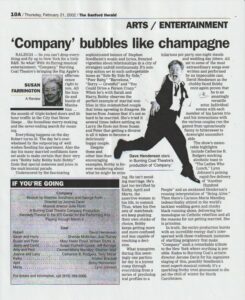
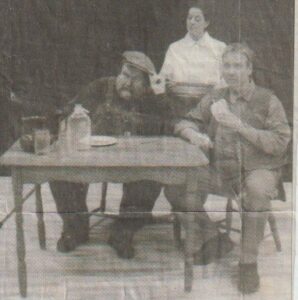
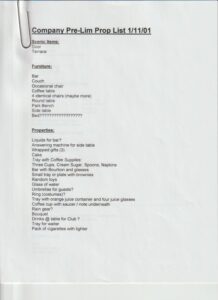
Have a fond or interesting memory of this play you’d like to share with us? We’d love to hear it!
Please Contact Us to Share!
Burning Coal Theatre
(919) 834-4001
224 Polk St., Raleigh NC 27604
Played February 14-March 3 2002: Company
The Road to Mecca
The Road to Mecca by Athol Fugard
Dir. Jerome Davis
Dates: April 4-21 2002
Location: Kennedy Theatre
Artistic Director’s Notes:
All Fugard plays address the issue of Apartheid. He was raised in the shadow of this source. His collaborations with Zakes Mokae, Yvonne Bryceland and the Market Street Theatre were not only revolutionary in their politics, but illegal under the strictly segregationist Apartheid law. Blacks and whites were not allowed to attend public events together, least of all theatre. Imagine sitting in the tiny, darkened theatre as lights rose on one of Fugard’s brilliant early plays: The Blood Knot, Swizwe Banzi is Dead, Statements Made After an Arrest Under the Immorality Act. The chance of a battalion of armed police in riot gear crashing through the door and hauling you off to prison was high. There you would sit, without charges being filed or a trail date being fixed. Your crime: watching a play in the company of someone not of your own race. This scene was played out over and over in the Apartheid era in South Africa late into the 1980s. It is a wonder that Fugard exists at all, a wonder that he wasn’t shunted away in some dank cell and tortured or murdered or just forgotten. That he survived and that his work survives is a testament to the indomitable human spirit. It is a shining example of how a person of peace can influence the world in a positive way. Recent similar examples include the playwright Vaclav Havel, who became President of Czechoslovakia and led his nation away from totalitarianism, Nelson Mandela himself, who sat in a prison for decades, never losing hope that one day he would walk forth and lead his nation into a brighter figure, George Mitchell, the American political figure who has rolled up his sleeves and made significant progress toward a peace treaty in Northern Ireland and Sister Helen Prejean, the Louisiana Nun who has fought the good fight against the injustices of the Death Penalty, as currently applied in the United States. Fugard belongs among this group. He stood up and stood out when expediency would have dictated otherwise. He did not raise a gun or a sword against the oppressive regime – he raised a pen. He carefully avoids writing propagandistic plays. His characters are whole, three dimensional, especially the ones with views contrary to his own. He fights to understand them because he knows that no real understanding can be found ont he road to denial, to self-congratulations and dismissal of opposing viewpoints. He imagined a world in which people of differing races, ethnicities, religions, and cultures would try to understand each other, not wipe each other from existence. Then he set out to make such a reality. There are plenty of forces fighting int he other direction today: in the Middle East, the former Soviet states, Sri Lanka. That Fugard, Mandela, the late Stephen biko and their brothers and sisters have succeeded to the degree that they have in South Africa is an amazing example of the power of peace and art. It is also a ringing condemnation of those who would take up the sword as an answer to all ills.
Jerome Davis, January, 2002
Crew:
Stage Manager: Rachel Zielinski
Technical Director: Matthew Fuller
Scenery Design: Robert John Andrusko
Lighting Design; Christopher Popwich
Costume Design: Shambhavi Kaul
Props: John Knauss
Sound Design: Rick Labach
Production Dramaturg: Florain Kay
Asst. Director: Emily Ranii
Ass. Technical Director: Jennifer Mann
Asst. Stage Manager: Andrew Hayworth and Zachary Zientek
Marketing DIrector: Michael Mason
Graphics Design: Simmie Kastner
Light Board Operator: Christian Etheridge
Production Photographer: Christopher McMullan
House Manager: Lisa Betz
Cast:
Alice Cannon – Miss Helen
Elissa olin – Elsa Barlow
David Dossey – Marius Byleveld
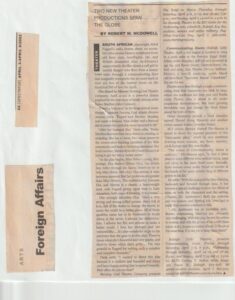
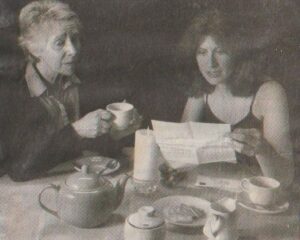
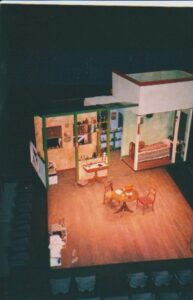
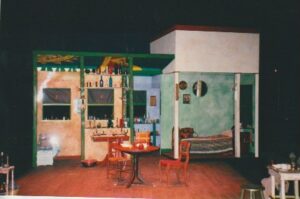
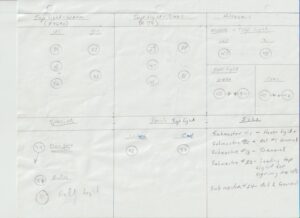
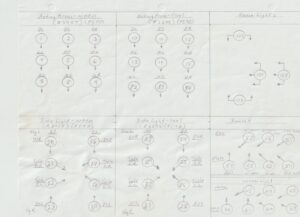
Have a fond or interesting memory of this play you’d like to share with us? We’d love to hear it!
Please Contact Us to Share!
Burning Coal Theatre
(919) 834-4001
224 Polk St., Raleigh NC 27604
Played April 4-21 2002: The Road to Mecca
Season 6: (2002-2003)
Travesties
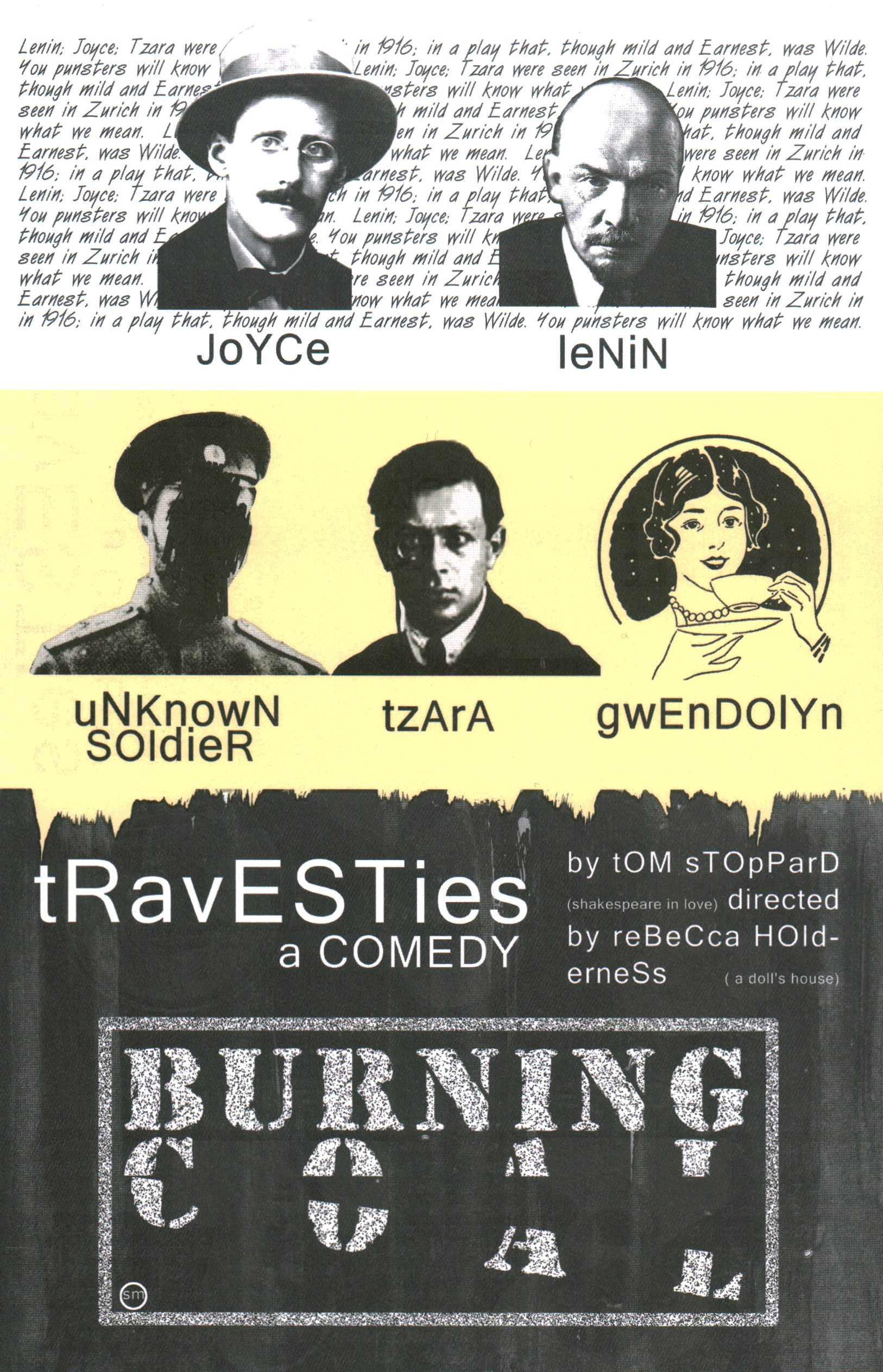
Travesties by Tom Stoppard
Dir. Rebecca Holderness
Dates: October 3-20 2002
Location: Kennedy Theatre
(May 24-31 at Physicians Auditorium in Charleston)
Juno and the Paycock
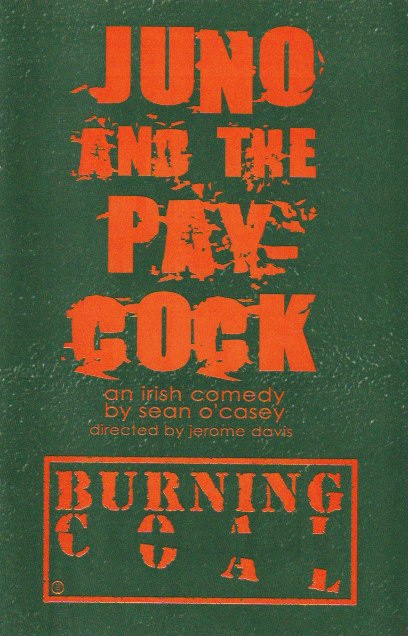
Juno and the Paycock by Sean O’Casey
Dir. Jerome Davis
Dates: Dec. 5-22 2002
Location: Raleigh Little Theatre
Tartuffe
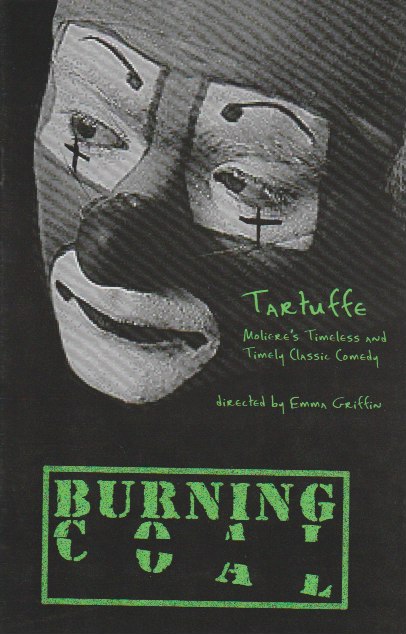
Tartuffe by Moliere
Dir. Emma Griffin
Dates: Jan. 30-Feb 16 2003
Location: Kennedy Theatre
Crumbs from the Table of Joy
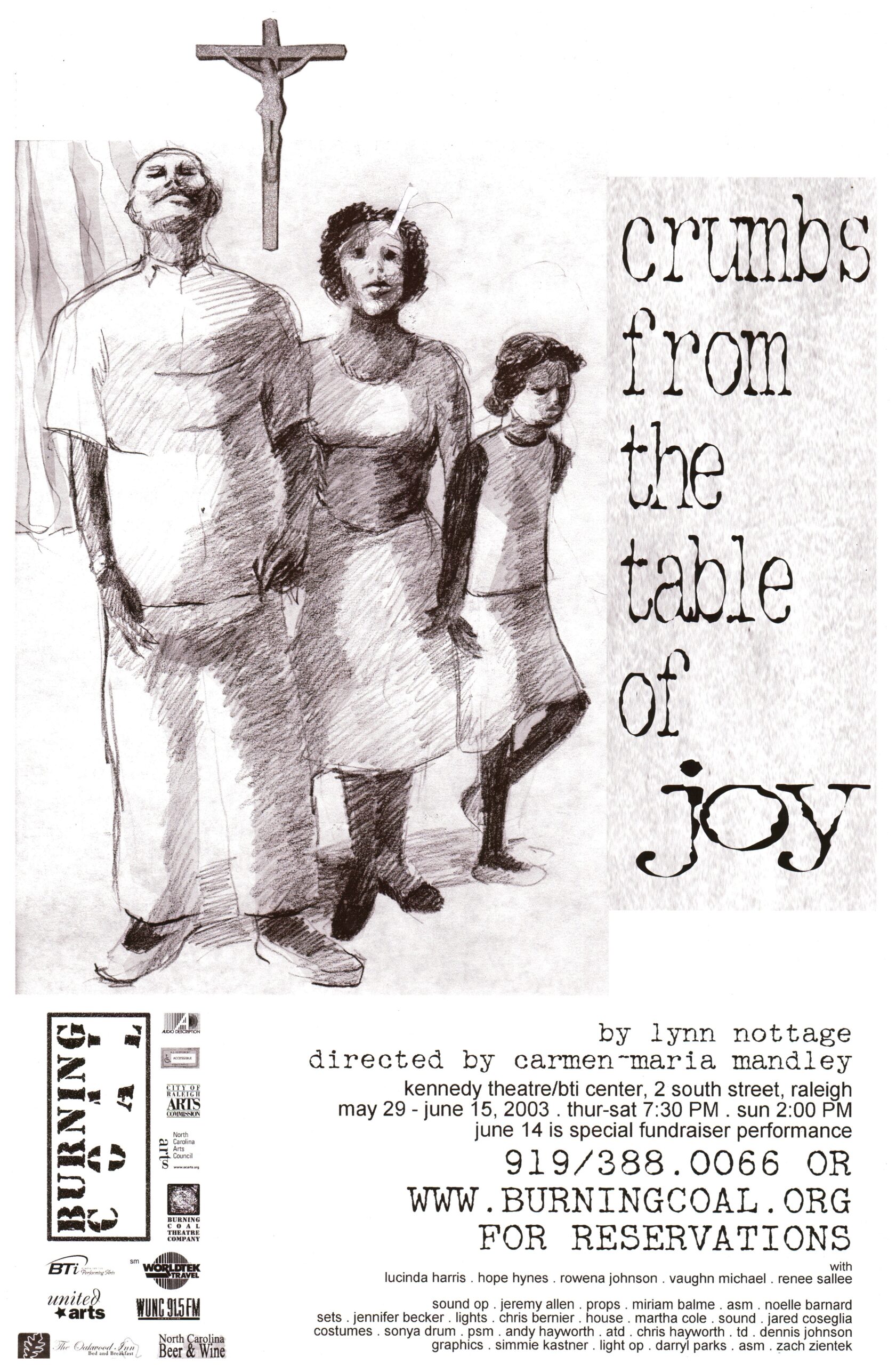
Crumbs from the Table of Joy by Lynn Nottage
Dir. Carmen-Maria Mandley
Dates: May 28-June 15 2003
Location: Kennedy Theatre
Travesties
Travesties by Tom Stoppard
Dir. Rebecca Holderness
Dates: October 3-20 2002
Location: Kennedy Theatre
(May 24-31 at Physicians Auditorium in Charleston)
Crew:
Stage Manager: Maggie Clifton
Production Stage Manager: Andy Hayworth
Technical Director: Dennis Johnson
Scenery and Props: Morag Charlton
Lighting Design: Matthew Adelson
Musical Director: Julie Florin
Sound Design: Rick Labach
Dramaturg: Floraine Kay
Vocal Coach: RIchard Gang
Asst. Technical Director: Jennifer Mann, Zach Zientek
Asst. Director: Sean Brosnahan, Gabe Lamazares
Cast:
David zum Brunnen – Henry Carr
Terry Milner – Tristan Tzara
Jared Coseglia – James Joyce
David Dossey – Lenin
Wade Dansby – Bennett
Sean Brosnahan – Gwendolyn
Serena Ebhardt – Cecily
Gabrieal Grieco – Nadya
Thaddeus Edwards – Chorus
Russel Beaman – Chorus
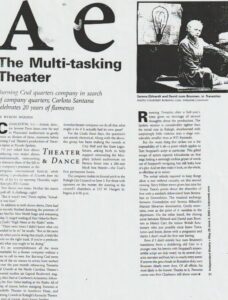
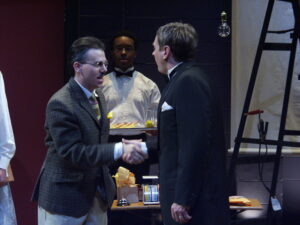
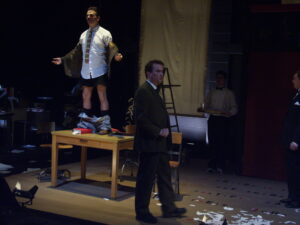
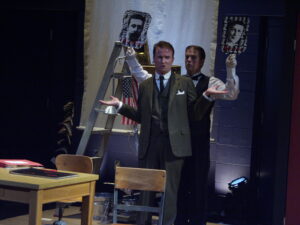
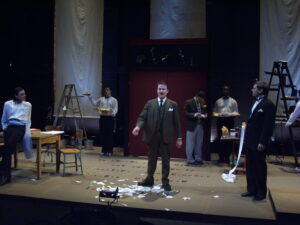
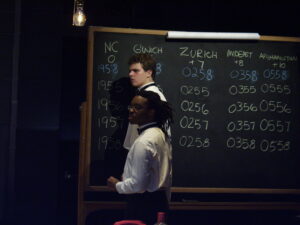
Have a fond or interesting memory of this play you’d like to share with us? We’d love to hear it!
Please Contact Us to Share!
Burning Coal Theatre
(919) 834-4001
224 Polk St., Raleigh NC 27604
Played October 3-20 2002: Travesties
Juno and the Paycock
Juno and the Paycock by Sean O’Casey
Dir. Jerome Davis
Dates: Dec. 5-22 2002
Location: Raleigh Little Theatre
Artistic Director’s Notes:
I’ve been telling people for some time that I think “Juno and the Paycock” is the most important play of the 20th century. IThat’s a pretty heavy burden for a play to carry, but I really do think it is true. Here’s why:
I see “Juno” at the beginning of a fork in the road. From O’Casey’s great play, there came two particularly distinct, influential and original world views. Down one path we find the emergence of the “sitcom.” There is nod doubt that “The Honeymooners,” “All in the Family,” “The Jeffersons,” “The Simpsons,” “Sanford & Son” and countless others were modeled after “Juno.” And the “model” has never existed before: the nuclear by dysfunctional family (blustery father, long-suffering mother, warring children, ne’er-do-well sidekick). That “road” alone would be enough to guarantee a place in theater history as an important work. But there is another road that sprang from O’Casey’s little tenement comedy/tragedy.
O’Casey didn’t much like Samuel Beckett. He felt Beckett’s world view was far too pessimistic. Beckett, however, loved O’Casey and the existentialism he saw at the core of his fellow Irishman’s writing. There is little doubt that Beckett’s sad and sorrowful clowns, particularly Estragon and Vladimir from “Waiting for Godot,” are direct descendants of Cap’n Jack and Joxer Daly. “Godot” was recently voted the play of the century by a panel of theater experts put together by London’s National Theatre. But would there have been a “Godot,” or even a Beckett, without “Juno and the Paycock?” And the influence of Beckett on modern drama is almost incalculable.
Crew:
Stage Manager: Adam Budlong
Technical Director: Jim Nuss
Scenery Design: Robert John Andrusko
Lighting Design: Christopher Popowich
Sound Design: Rick Labach
Costume Design: Amanda McElray
Costumer: Kena Lindsay
Props: Lisa Medina
Music Director: Julie Florin
Vocal Coach: Michael O’Foghludha
Choreographer: Debra Gillingham
Asst. Director: Zachary Zientek
Marketing Director: Mark Spano
Graphics Design: Simmie Kastner
Asst. Stage Manager: Andy Hayworth and Sharon Pigott
Light Board Operator: Elliot Etheridge
Cast:
Russel Beaman – Sewing Machine man/Irregular
Lennardo Delaine – Johnny Boyle
David Dossey – Jack Boyle
James Fleming – Joxer Daly
Kenny Gannon – Charles Bentham
Debra Gillingham – Juno Boyle
David Byron Hudson – Jerry Devine
Stephen Letrent – Irregular/Neighbor
Michale O’Foghludha – ‘Needle’ Nugent/The Mobilizer
Emily Ranii – Mary Boyle
Melissa Ricketts – Mrs. Tancred
Matthew Rockel – Coal Block Man/Furniture Man
Nan L. Stephenson – Maise Madigan

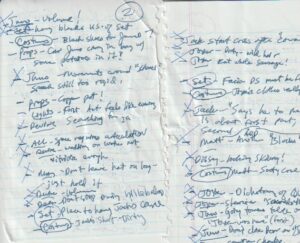
Have a fond or interesting memory of this play you’d like to share with us? We’d love to hear it!
Please Contact Us to Share!
Burning Coal Theatre
(919) 834-4001
224 Polk St., Raleigh NC 27604
Played Dec. 5-22 2002: Juno and the Paycock
Tartuffle
Tartuffe by Moliere
Dir. Emma Griffin
Dates: Jan. 30-Feb 16 2003
Location: Kennedy Theatre
Crew:
Stage Manager: Melissa Ricketts
Technical Director: Jennifer Mann–Becker
Scenery Design: Jennifer Mann-Becker
Lighting Design: Christopher Popowich
Sound Design: Rick Labach
Costume Design: Maggie Clifton
Props: Jennifer Baker
Asst. Stage Manager: Zachary Zientek
Lighting Asst.: Chris Bernier
Marketing DIrector: Mark Spano
Graphics Design: Simmie Kastner
Light Board OPerator: Elliot Etheridge
House Manager: Joyce Copeland
Cast:
Bob Barr – Mme. Pernelle
Liz Beckham – Dorine
Ann Cole – Marianne
David Henderson – Tartuffle
George Jack – Cleante
Stephen Letrent – Damis
Elizabeth London – Elmire
Rick Lonon – Orgon
Michael O’Foghludha – Laurant
Adam Patterson – Valere
Greg Paul – Laurant/Flipote/Officer
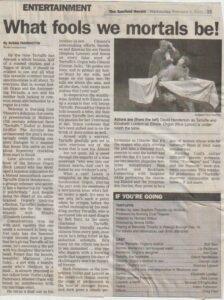

Have a fond or interesting memory of this play you’d like to share with us? We’d love to hear it!
Please Contact Us to Share!
Burning Coal Theatre
(919) 834-4001
224 Polk St., Raleigh NC 27604
Played Jan. 30-Feb 16 2003: Tartuffe
Crumbs from the Table of Joy
Crumbs from the Table of Joy by Lynn Nottage
Dir. Carmen-Maria Mandley
Dates: May 28-June 15 2003
Location: Kennedy Theatre
Artistic Director’s Notes:
I love Lynn Nottage’s bright and sassy play for many reasons. Its humor, warmth and literacy is unquestioned. It stands as one of the faireset pieces of literature I have encountered in some time, and as such, it scores many points in favor of Ms. Nottage’s own aggressive, social agenda. Iam most impressed by its ability to not take itself too seriously. That is quite a feat given the remarkably serious subject matter at its core: Racism. Ms. Nottage understands that everyone has a day-to-day life and that the minute hurdles that each person faces can seem, at the time, to be as enormous as, say, segregation or Jim Crow laws. By not making the characters in Crumbs super-heroes, endowed with otherworldly stoicism, patience, strength, resolve, she elevates them to a level where we can see them. This is Me! This is how I might behave in similar circumstances. She takes all the melodrama from the situation and forces us to see Ernestine, Ermina and the whole Crump family, as people, not as “soldiers in the eternal fight” or somesuch. That doesn’t seem like much, but for a writer whose concerns are clearly anchored in political waters, it is an achievement to be relished. The children swear! The aunt is a lush! The father is delusional! Sounds a lot like the family I grew up with.
As we finish our sixth season, there are choppy waters ahead. Money is drying up in the public and private sectors, audiences are concerned about leaving their house, let alone whether a production will be good or bad. It is a difficult time for all of us, but particularly for the small non-profit organizations who stand, like the boy with his finger in the dyke, against a rising tide of disinterest, of aggressive ignorance and of political machinations that would use art as a tool to batter and badger those of us who simply want to help make the world a better place. Please be vigilant in these times. Please keep your eyes and ears open. There are plenty of people around who don’t believe that we are all one family, who don’t think the value of one person’s life is equal to the value of another person’s unless their bank account is equal. Lynn Nottage is writing from a minority viewpoint, and that is a very scary thing in the 21st century.
Jerome Davis May, 2003
Crew:
Stage Manager: Andrew Hayworth
Technical Director: Kennifer Mann Becker
Lighting Design: Christopher Bernier
Costume Design: Sonya Drum
Props: Miriam Balme
Sound Design: Jared Coseglia
Asst. Stage Manager: Noelle Barnard, Amber JOrdan, and Kimberly Weeks
Asst. Technical Director: Zach Zientek
Graphics Design: Simmie Kastner
Light Board Operator: Darryl Parks
Sound Board Operator: Jeremy Allen
House Manager: Marhta Cole
Guest Lecturer: Dr. Assad Meymandi
Cast:
Lucinda Harris – Ermina
Hopes Hynes -Gerte Crump
Rowena Johnson – Ernestine Crump
Vaughn Michael -Godfrey Crump
Renee Sallee – Lily Ann Green
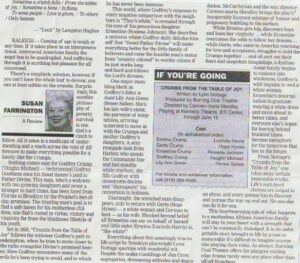
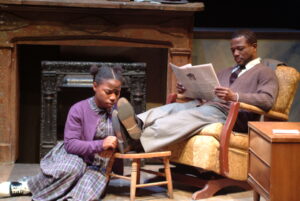
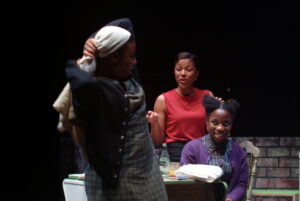
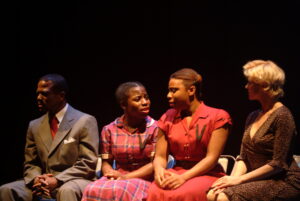
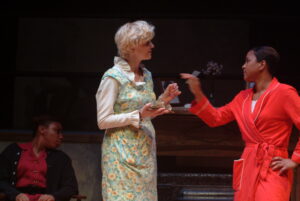
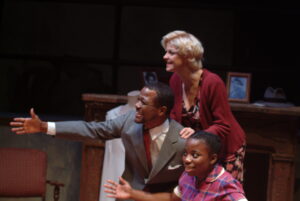
Have a fond or interesting memory of this play you’d like to share with us? We’d love to hear it!
Please Contact Us to Share!
Burning Coal Theatre
(919) 834-4001
224 Polk St., Raleigh NC 27604
Played May 28-June 15 2003: Crumbs from the Table of Joy

Thank you. Your being here and your support makes it possible to bring live, inclusive, innovative theatre to Downtown Raleigh, NC, and beyond.
Burning Coal Theatre Company is funded in part by the City of Raleigh based on recommendations of the Raleigh Arts Commission. Burning Coal Theatre Company is supported by the United Arts Council of Raleigh and Wake County.
Burning Coal Theatre | (919) 834-4001 | info@burningcoal.org | 224 Polk St., Raleigh NC 27604
Copyright © 2021 Burning Coal Theatre Company | All Rights Reserved | Home




